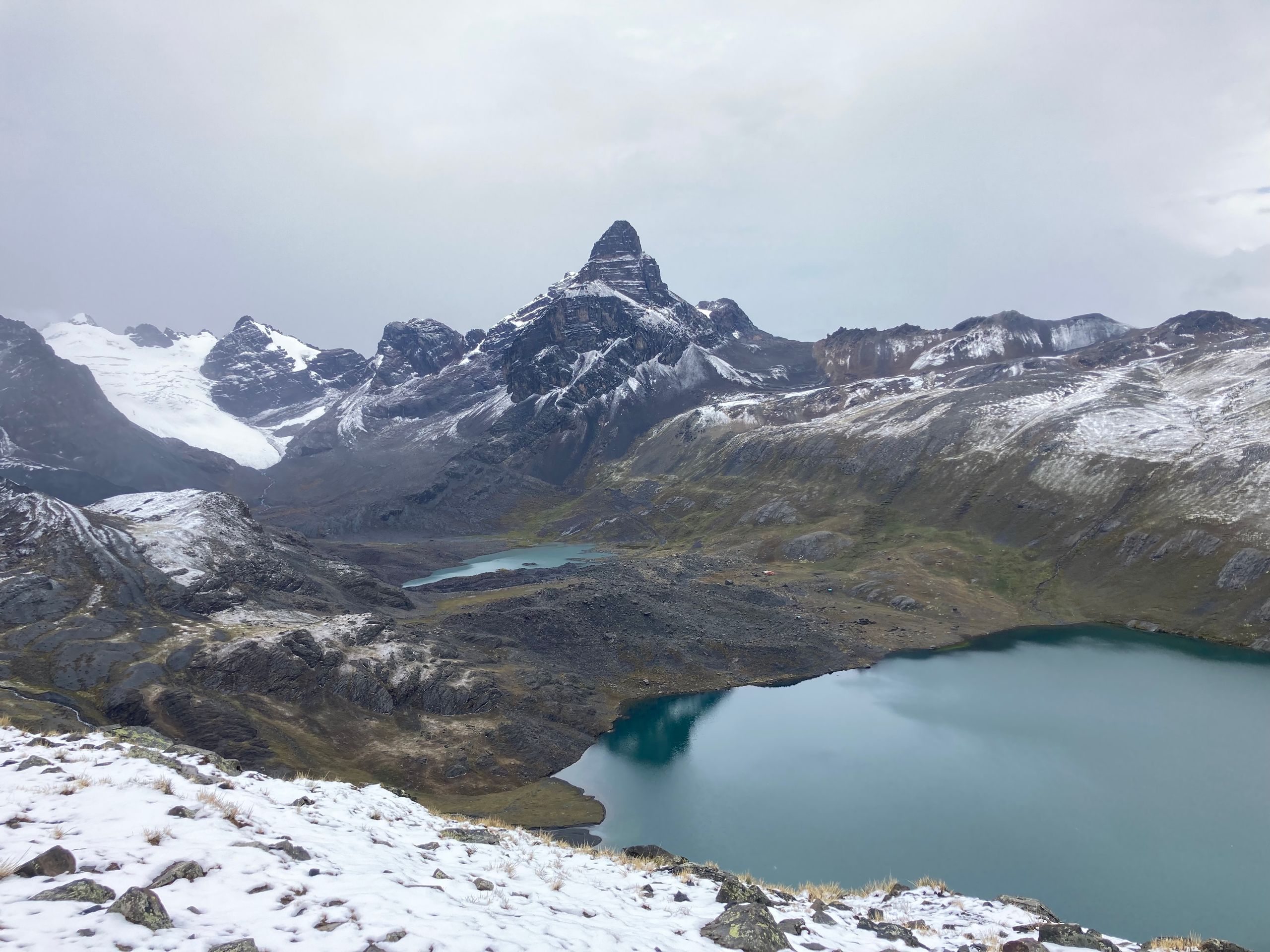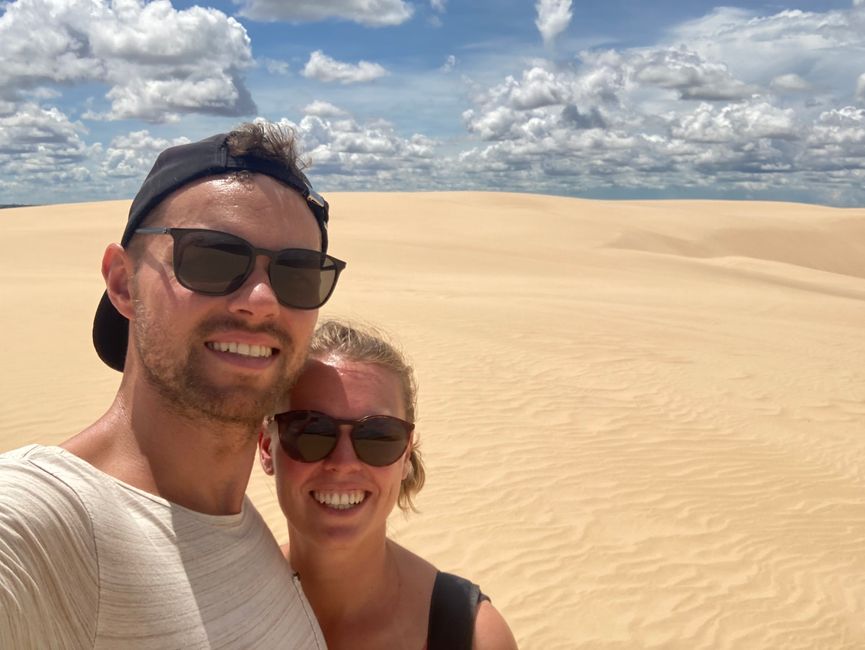Galapagos Islands
પ્રકાશિત: 10.03.2023
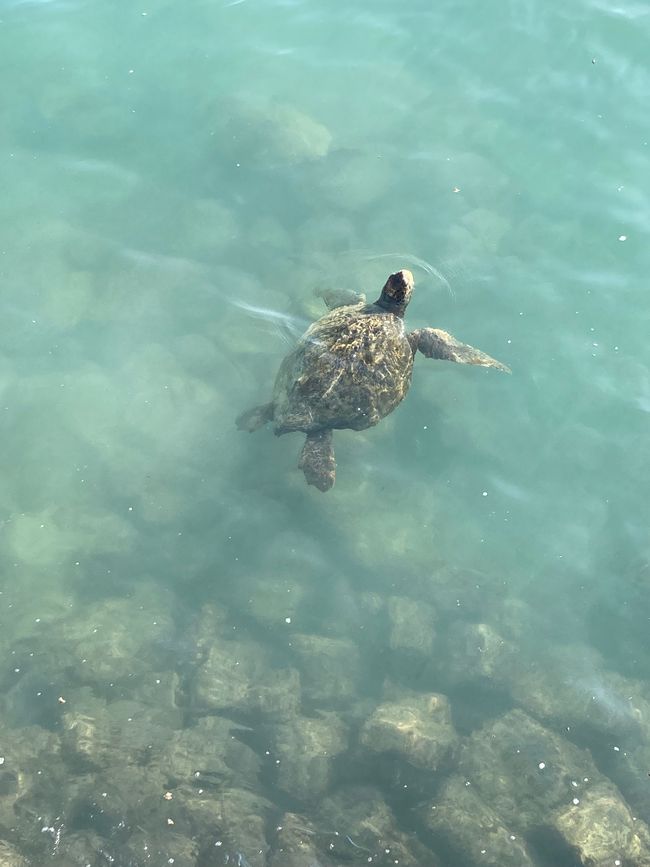
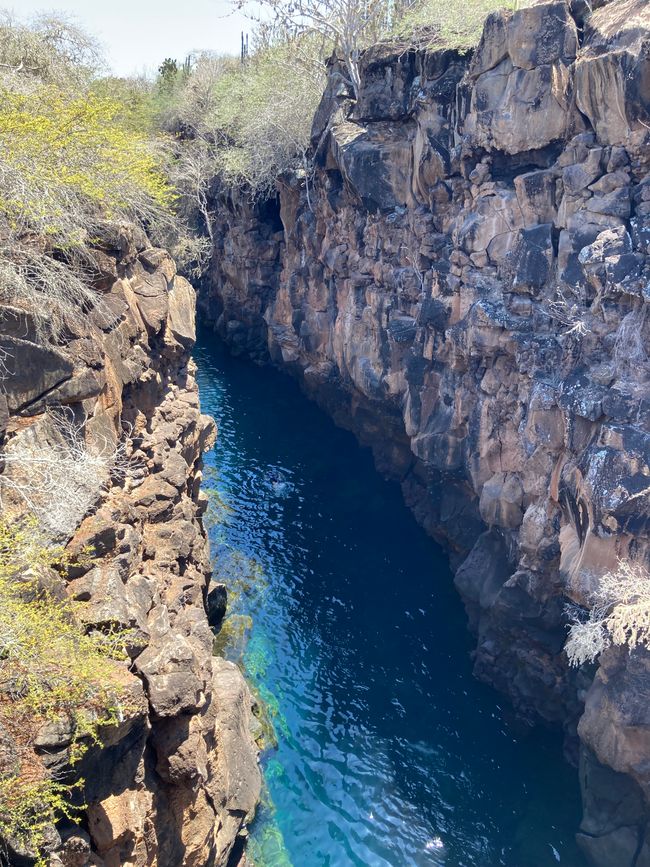
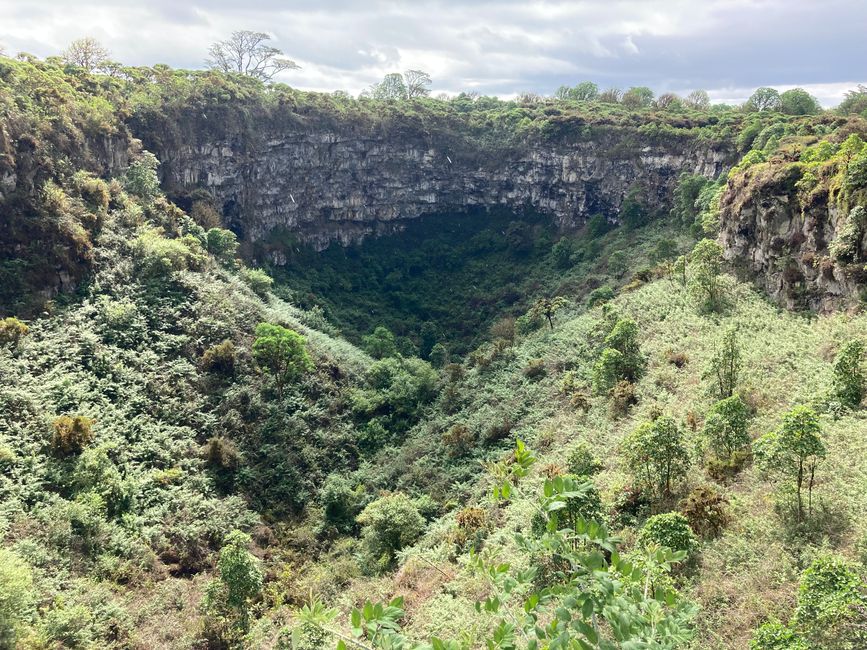
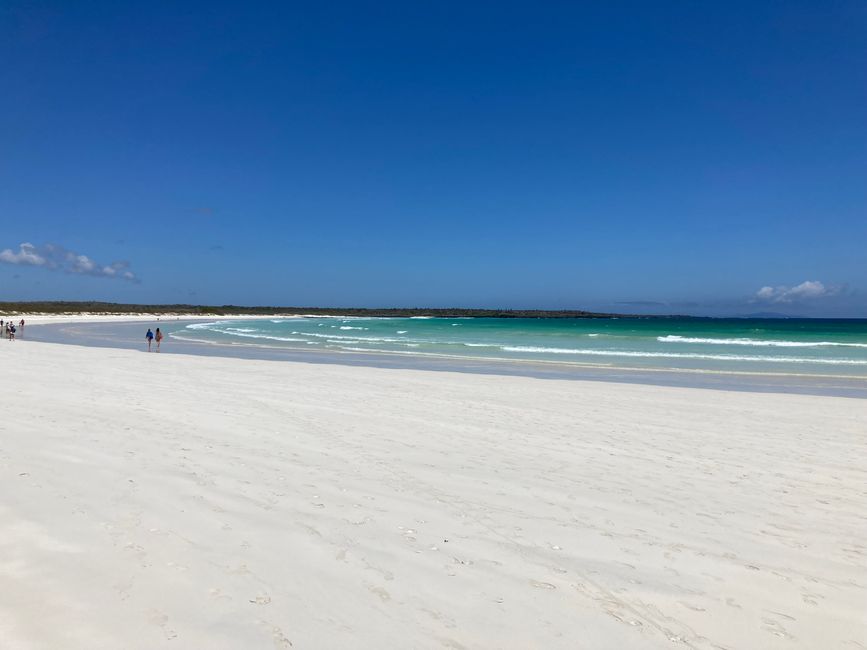
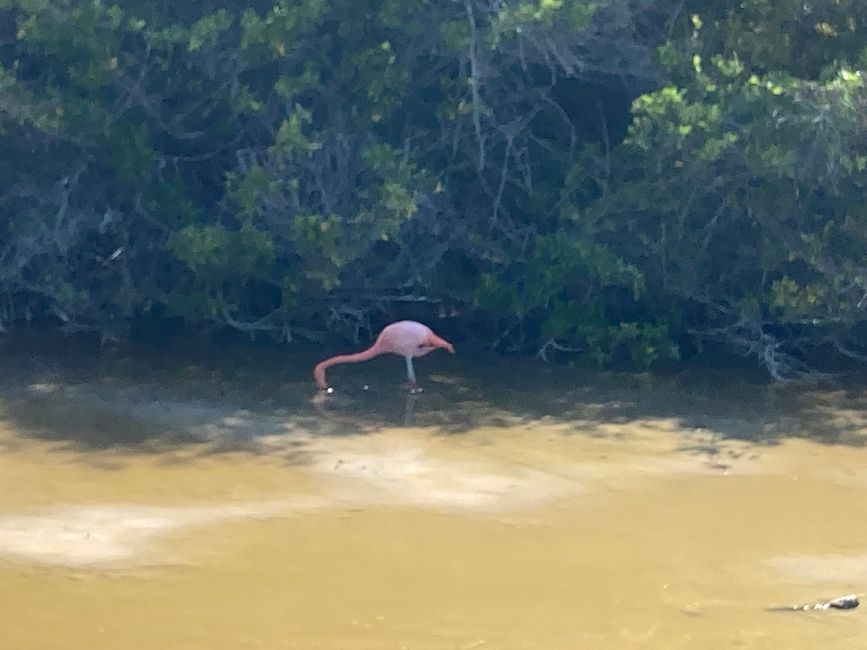
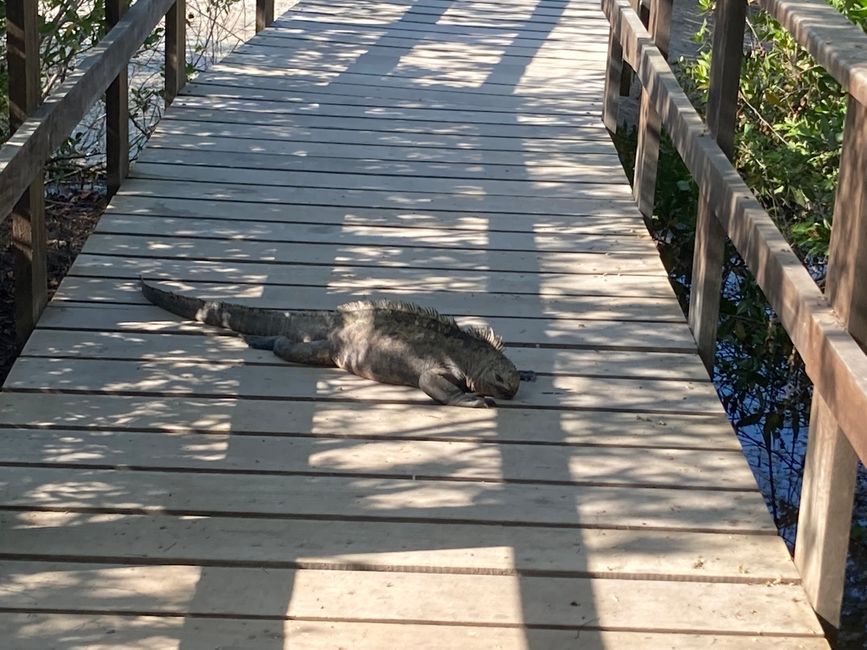
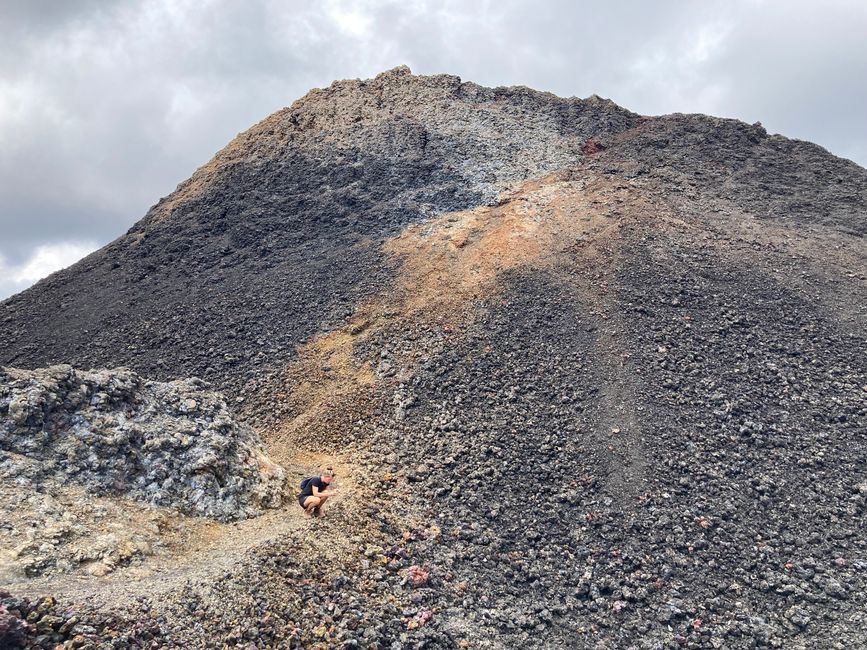
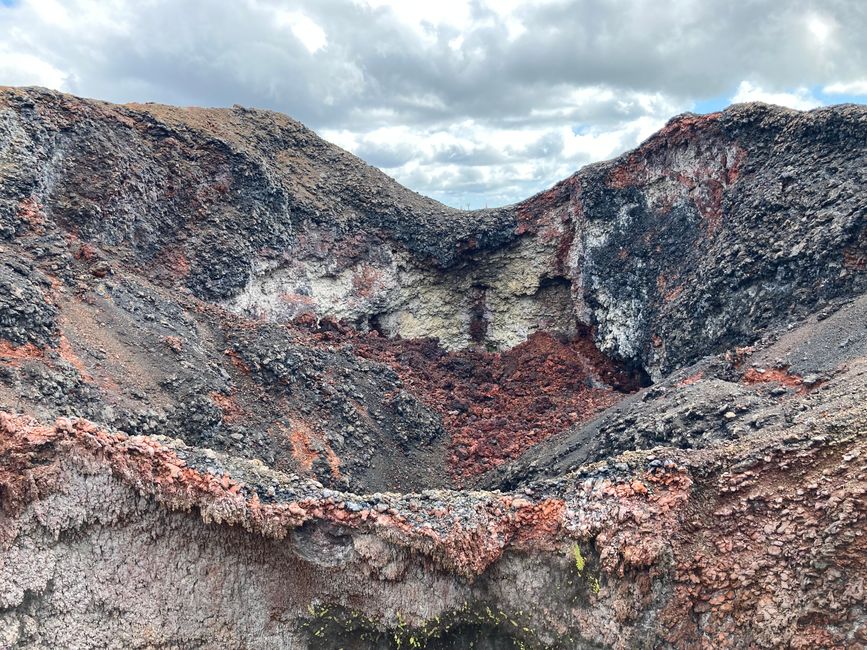
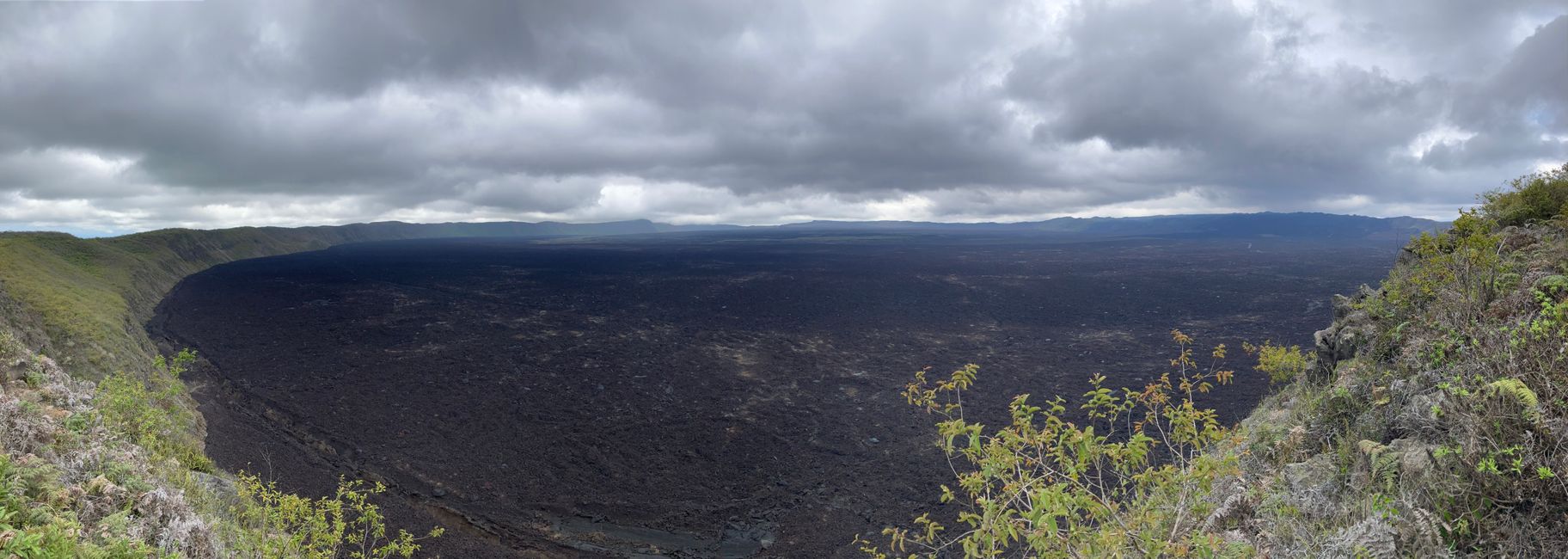
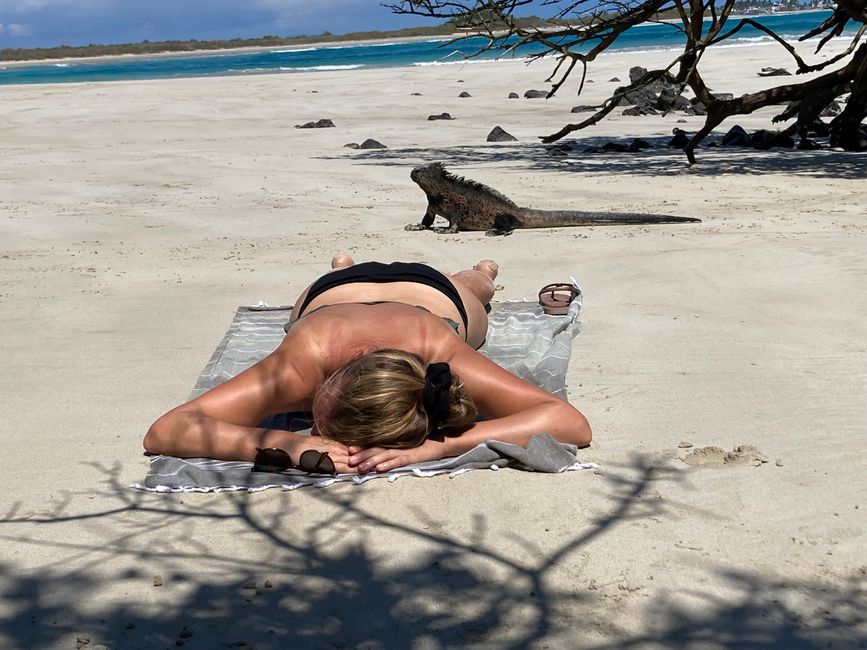
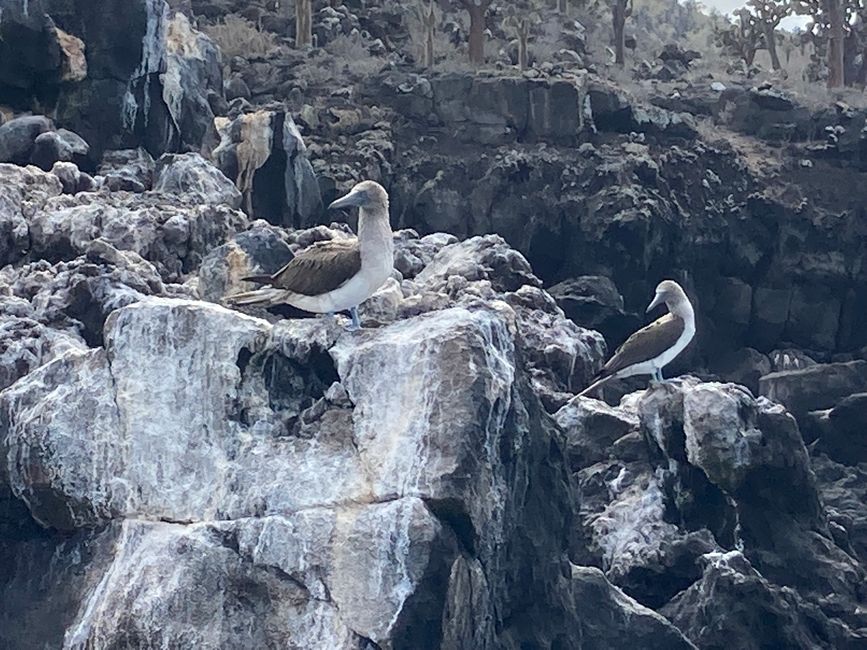
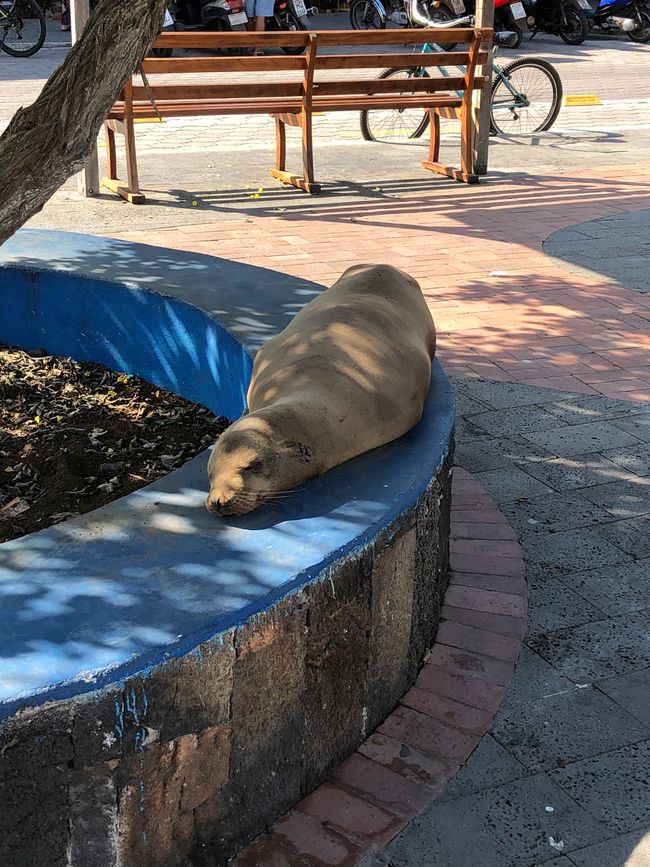
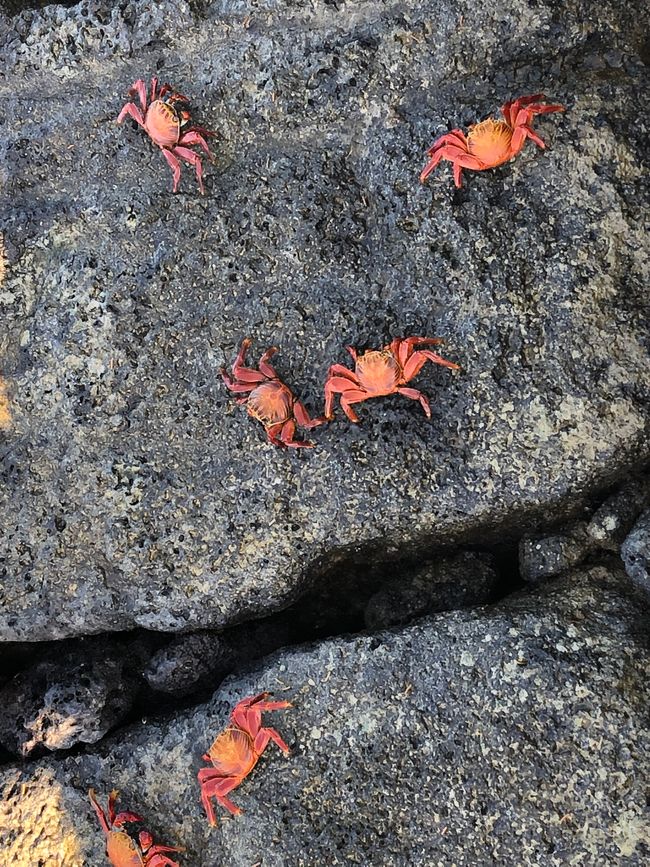
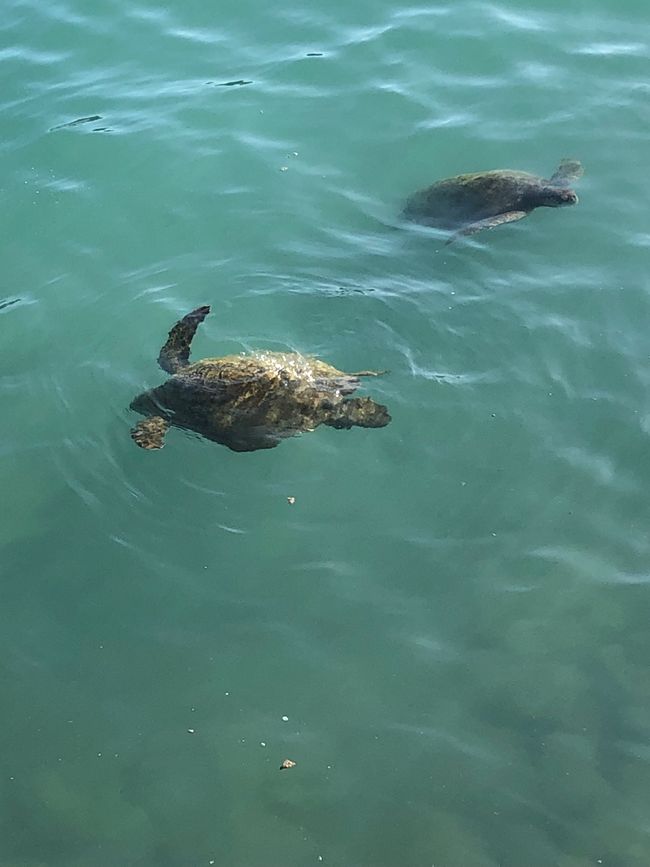
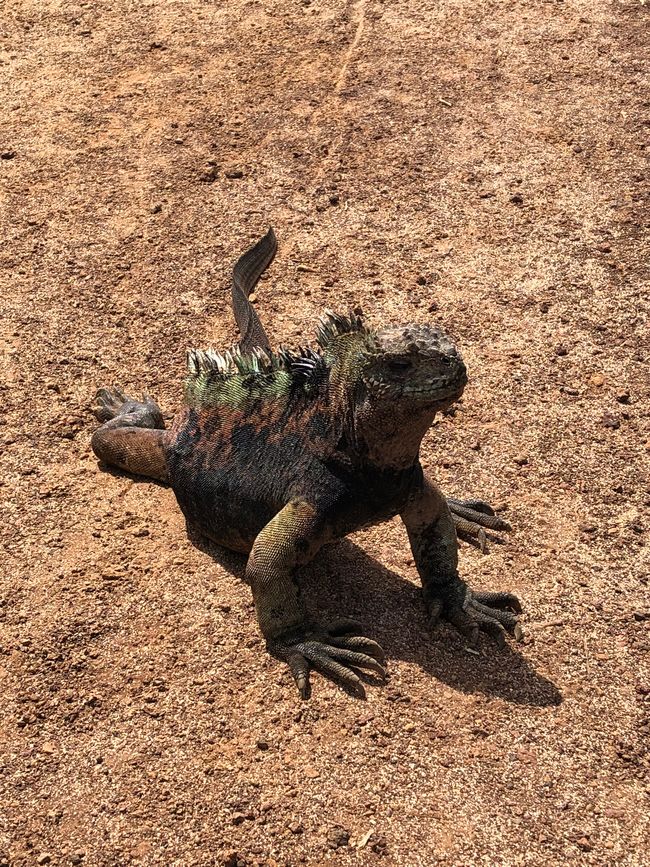
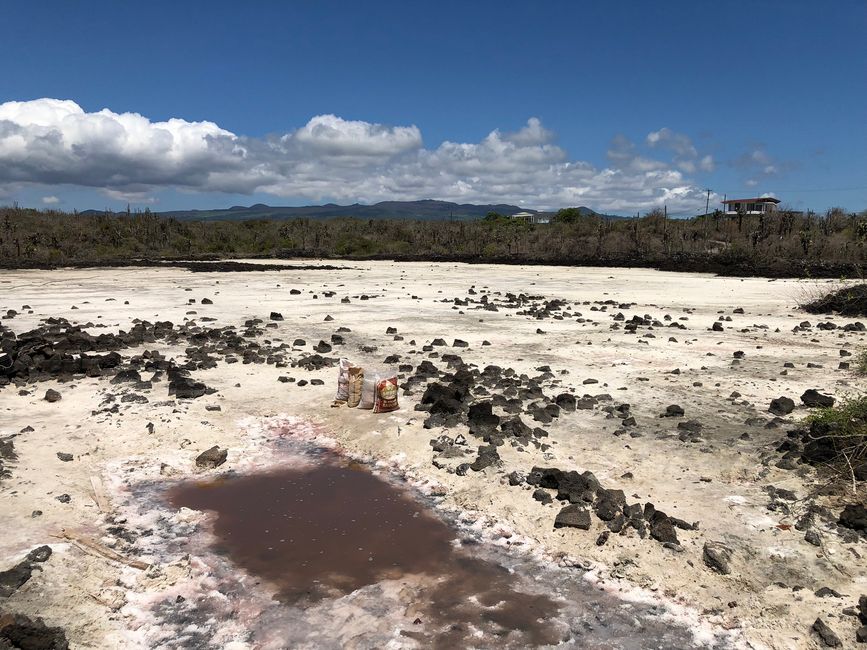
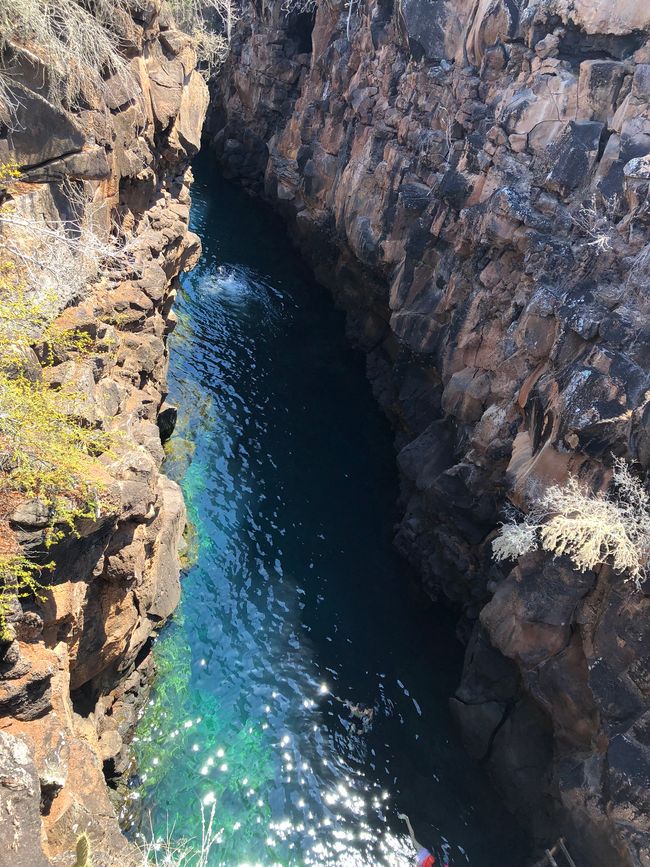
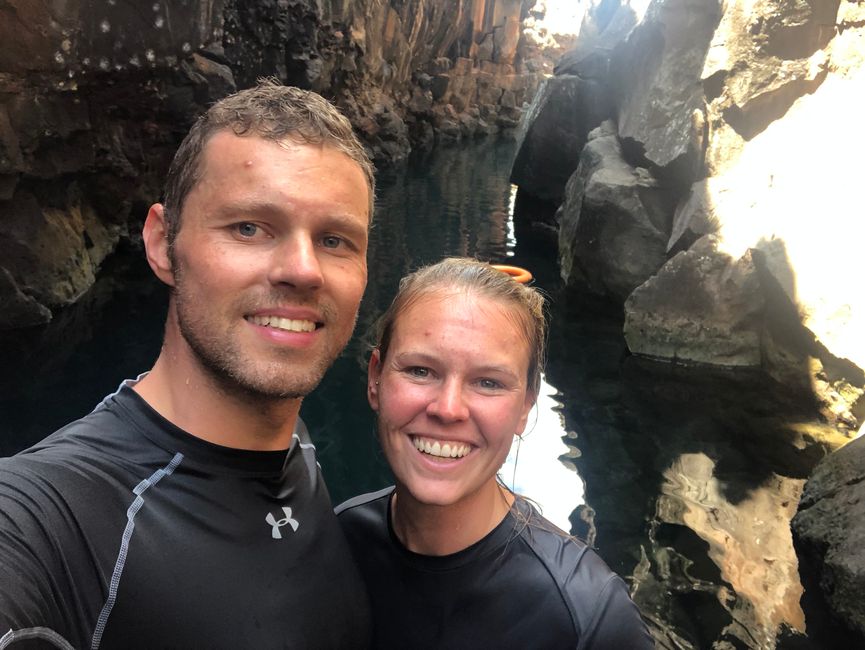
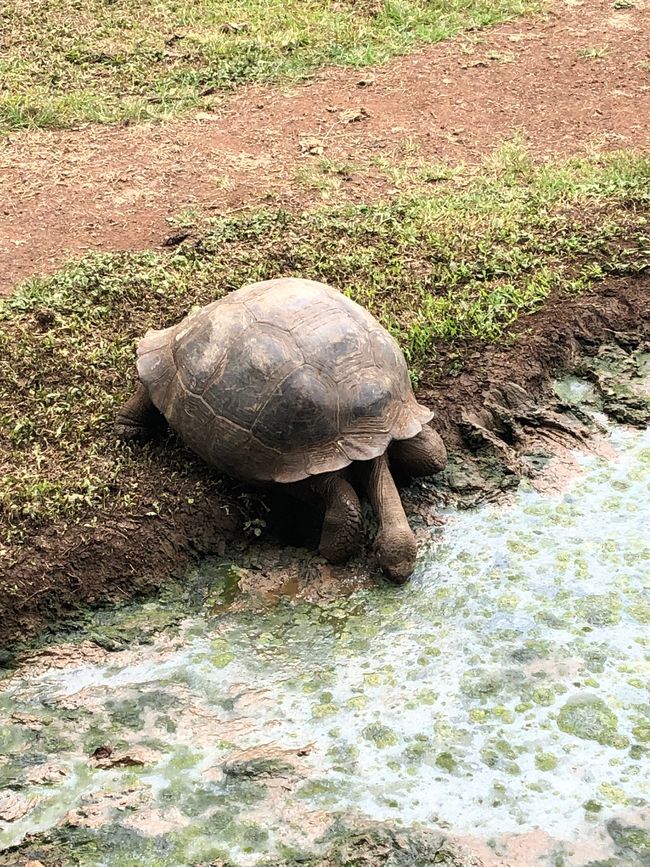
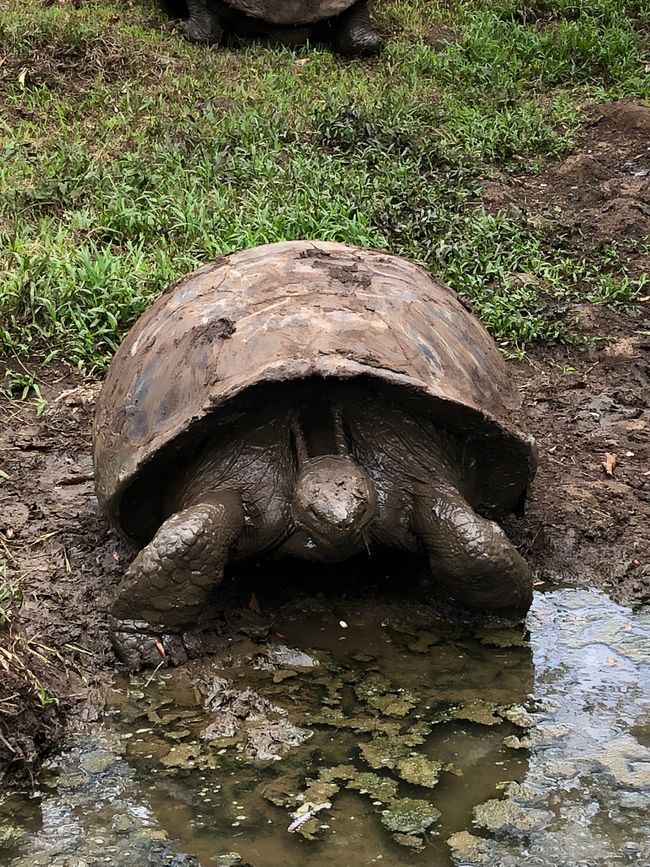
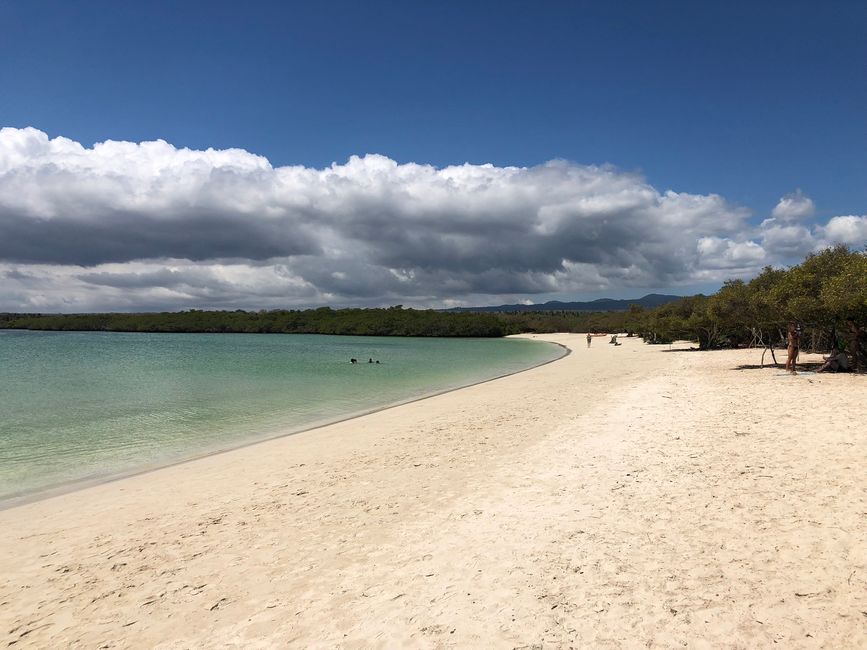
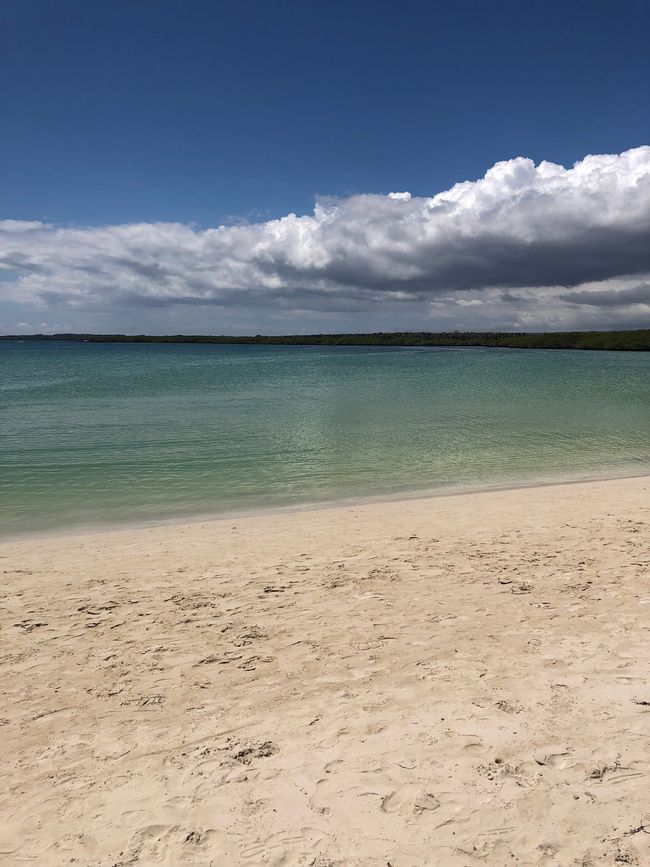
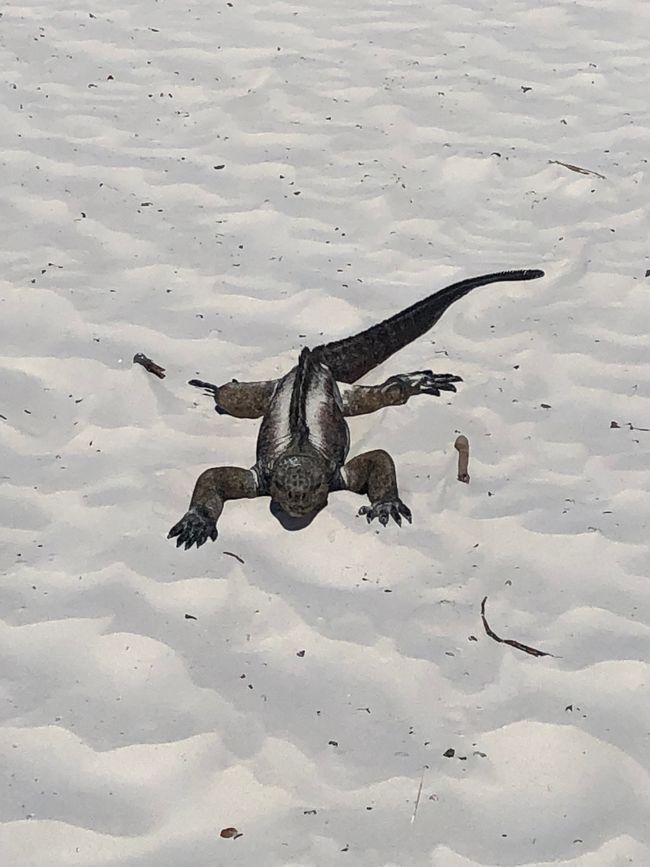
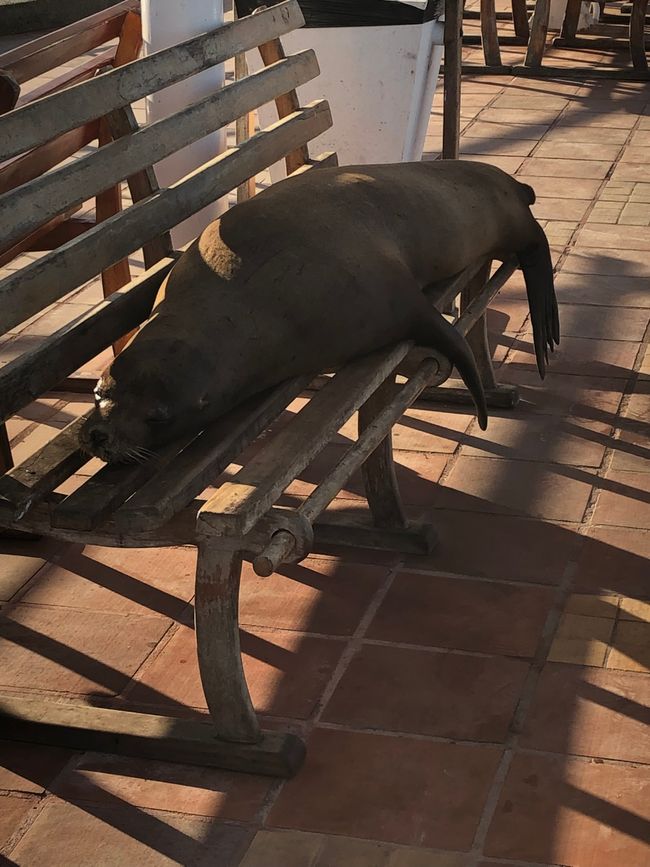
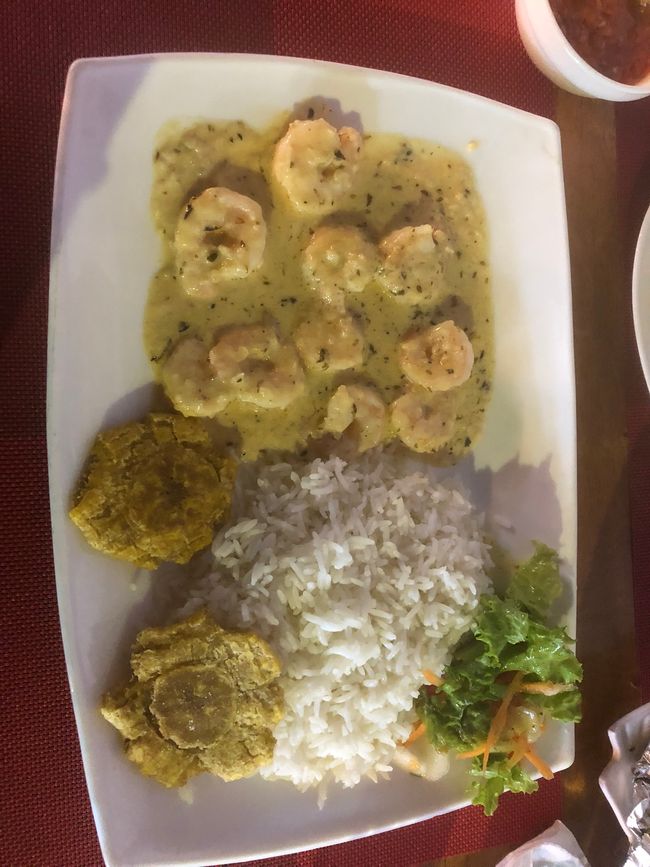
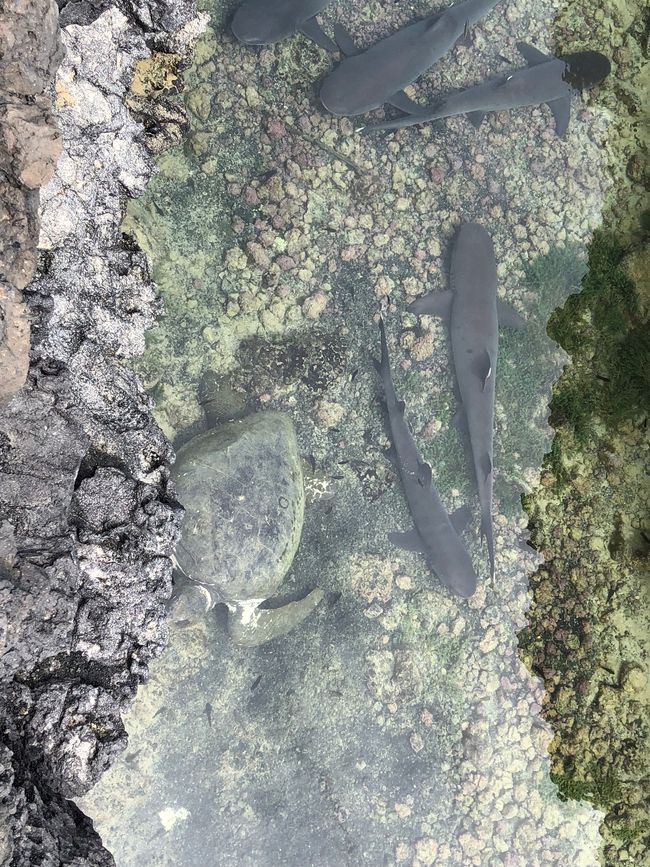
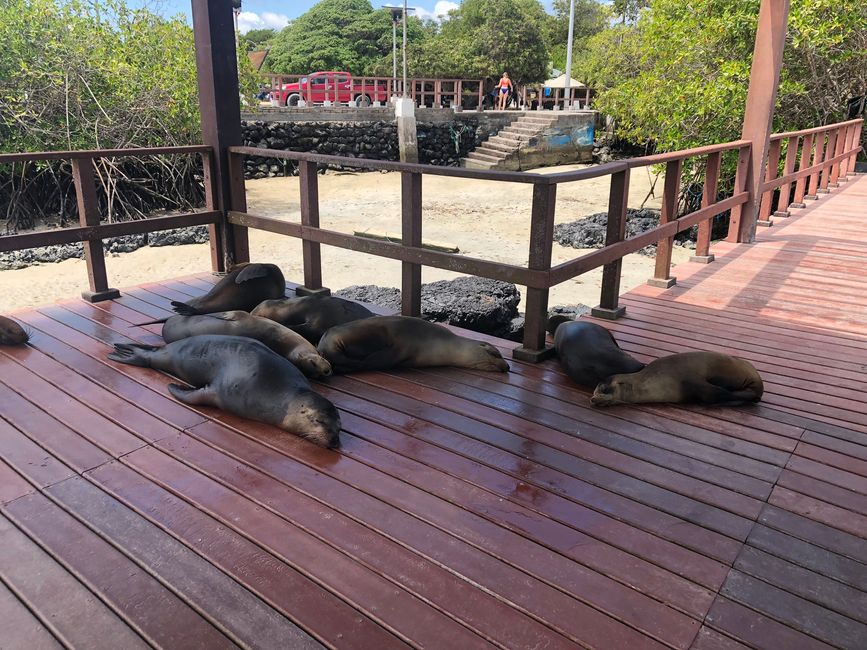
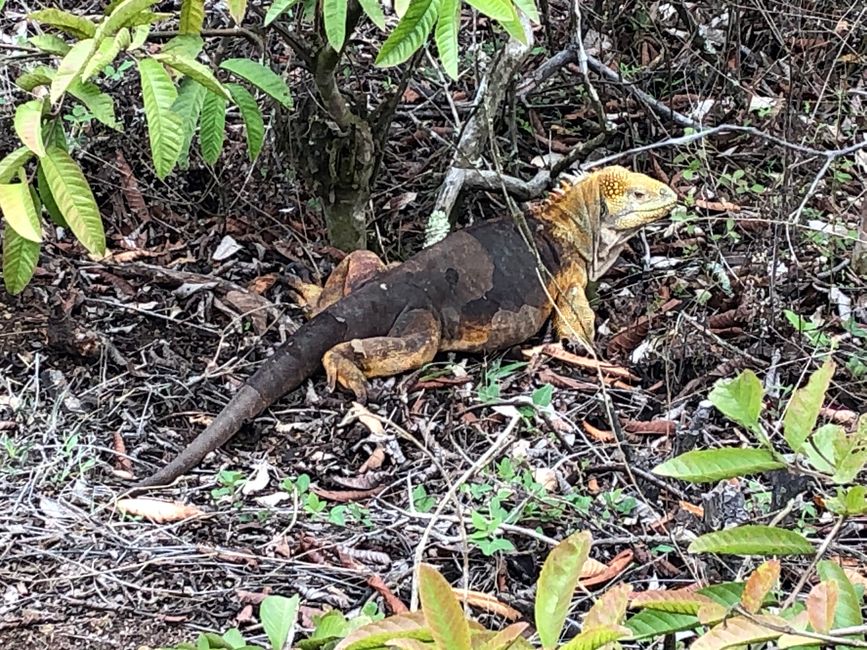
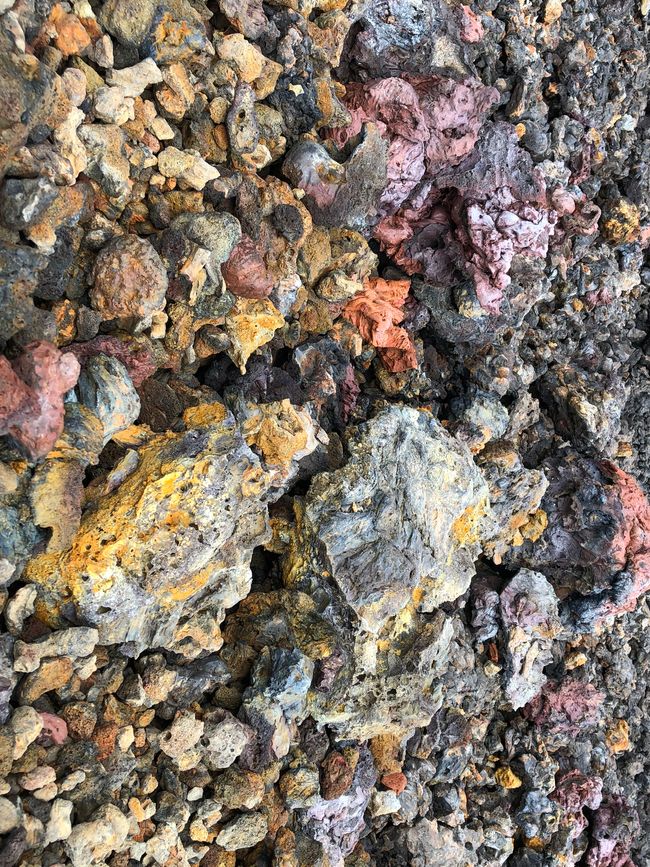
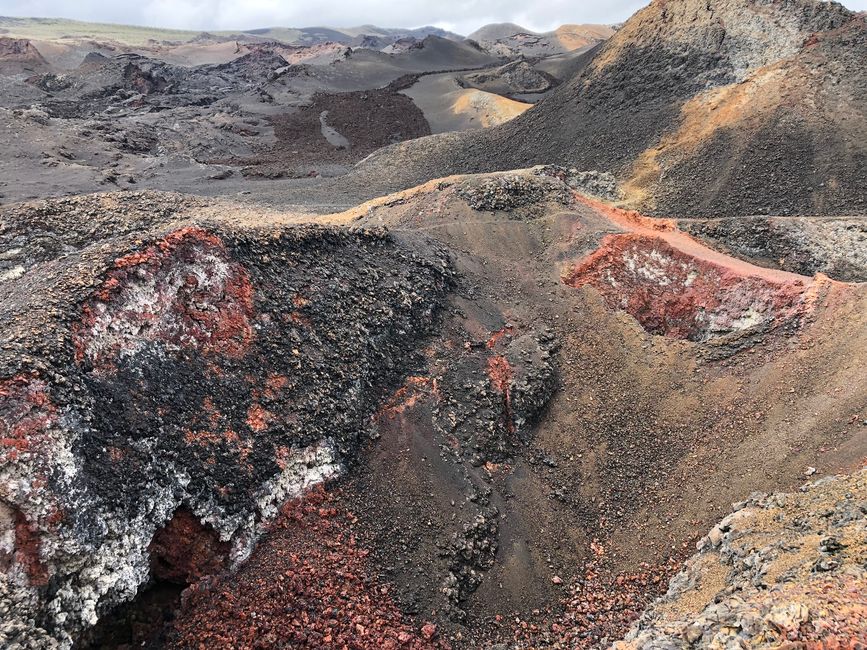
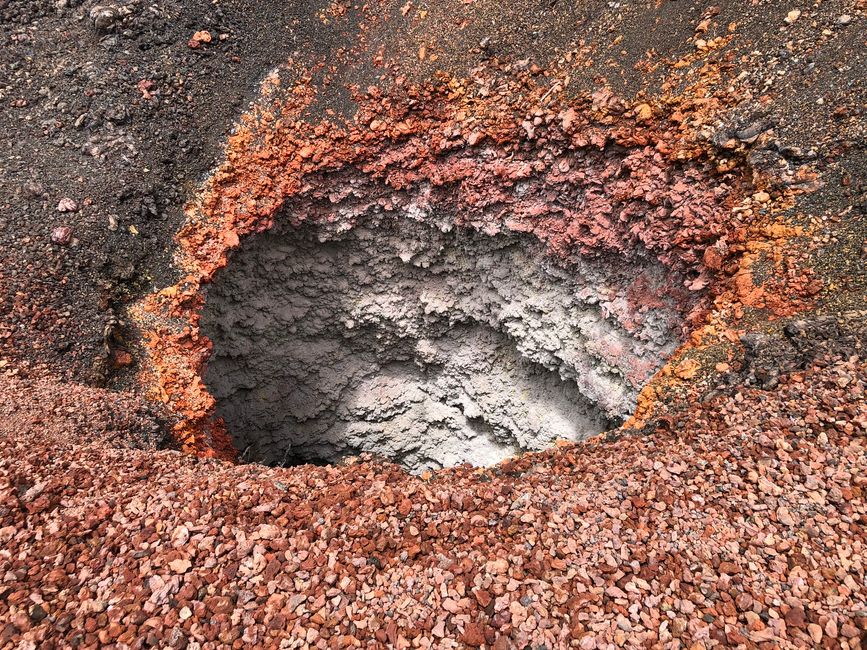
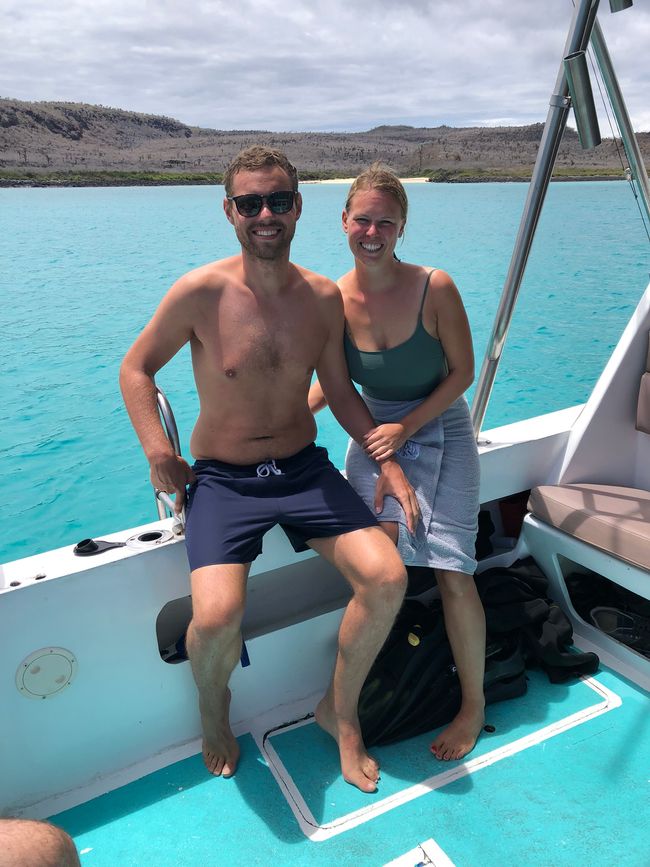
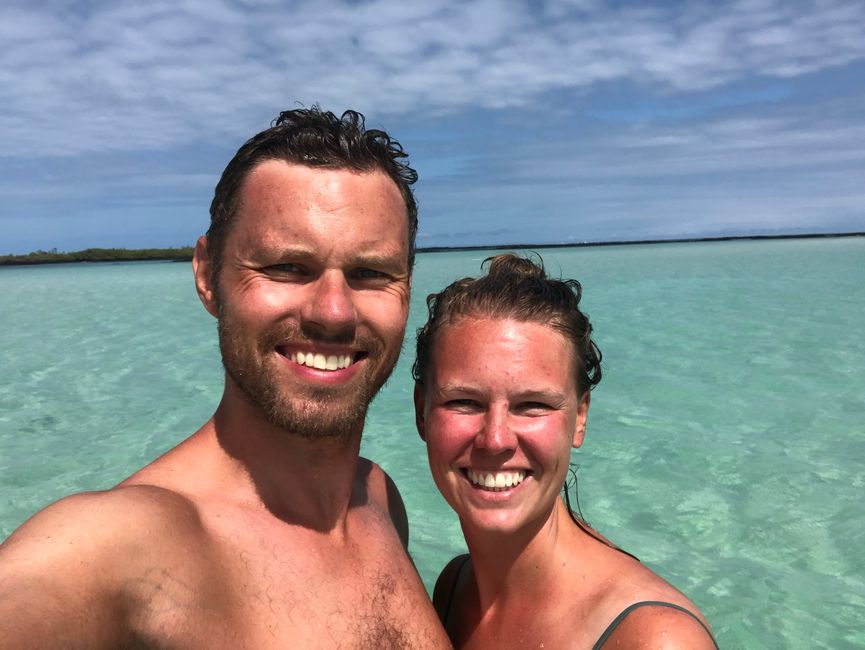
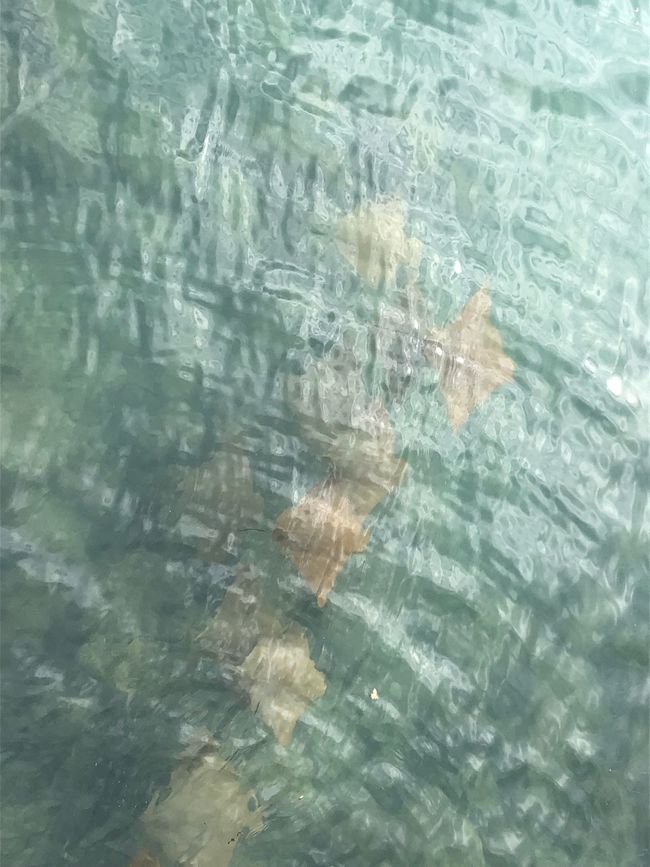
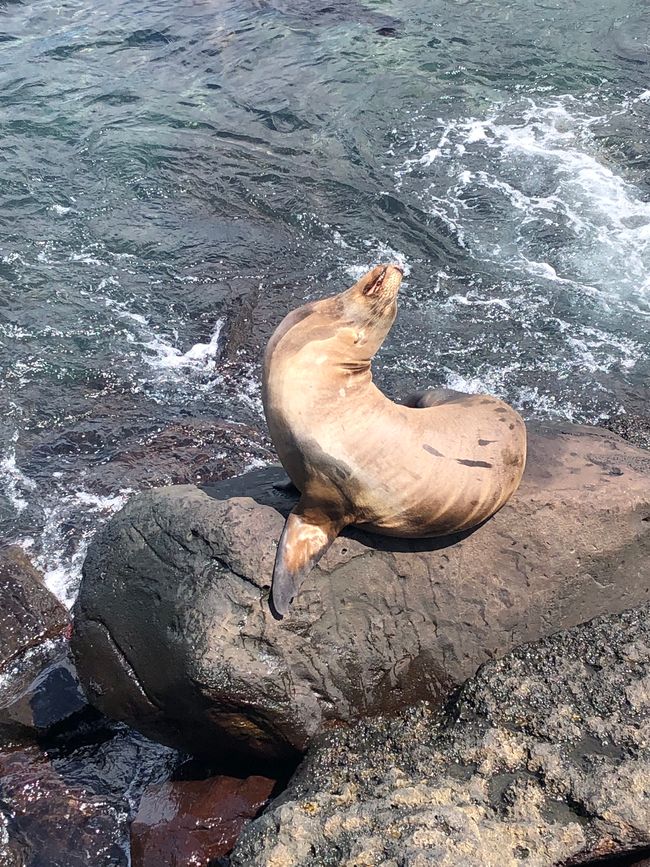
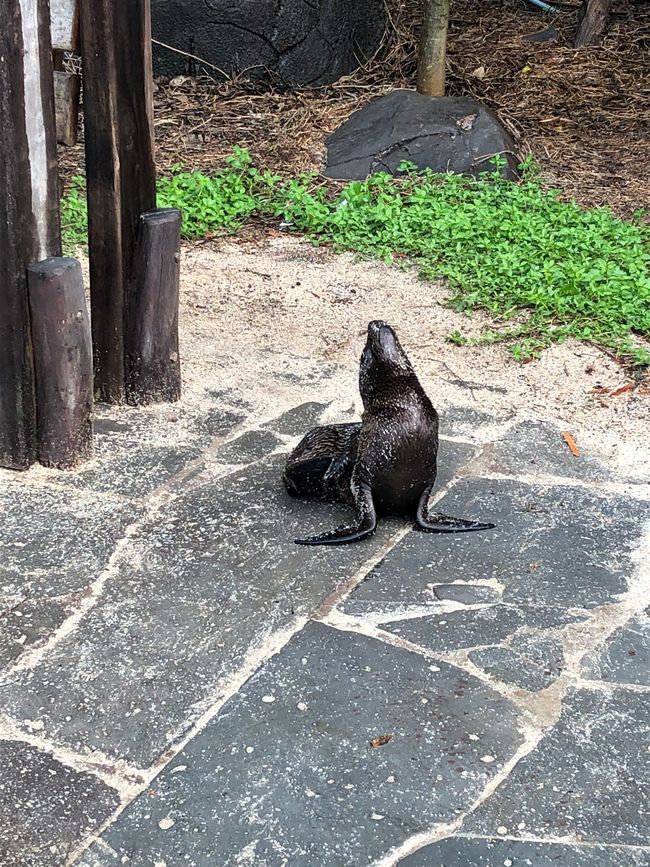
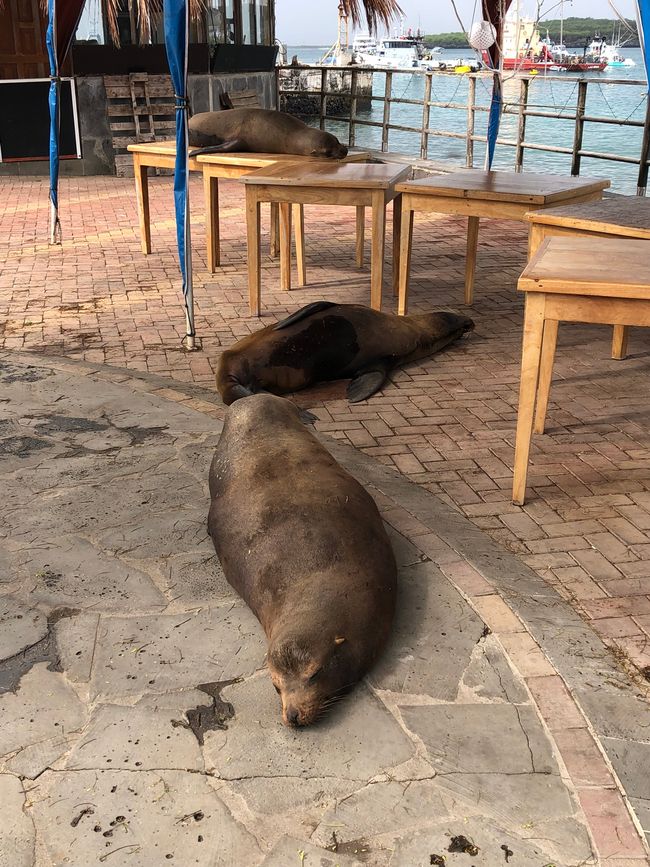
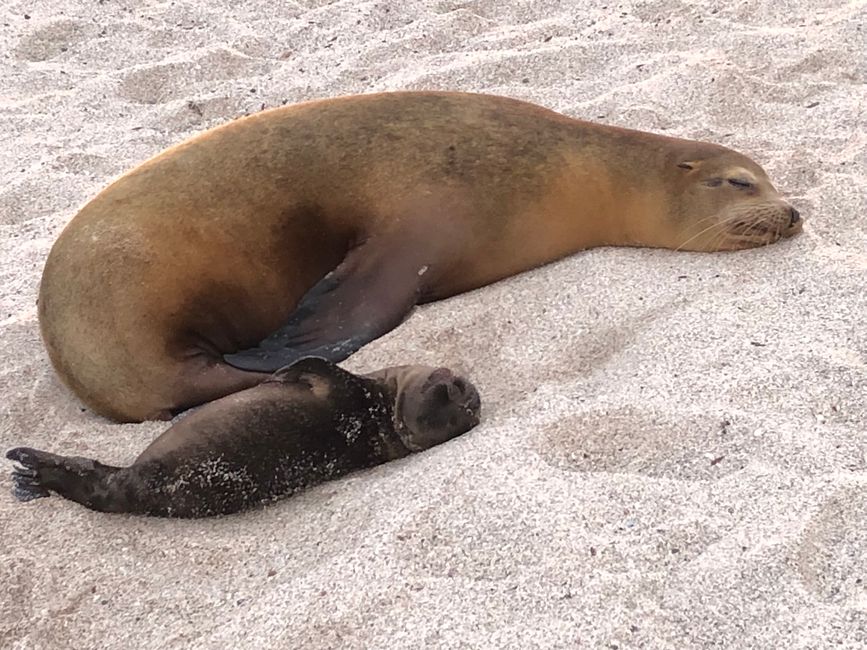
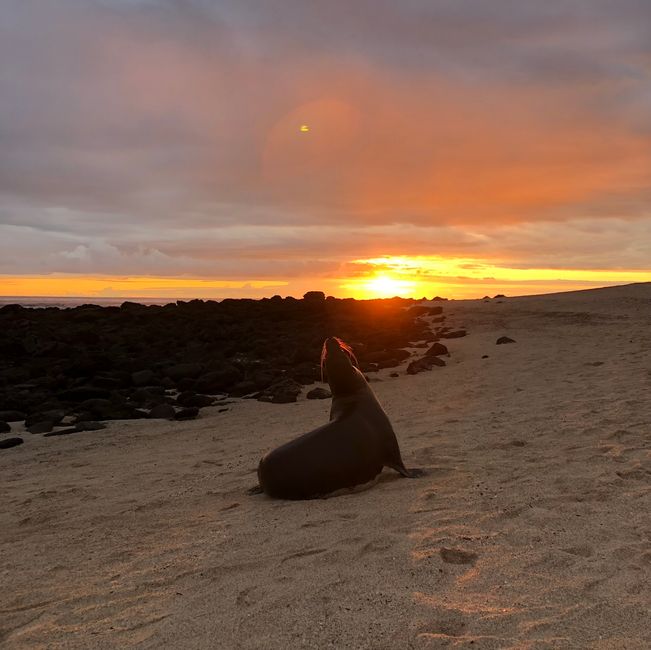
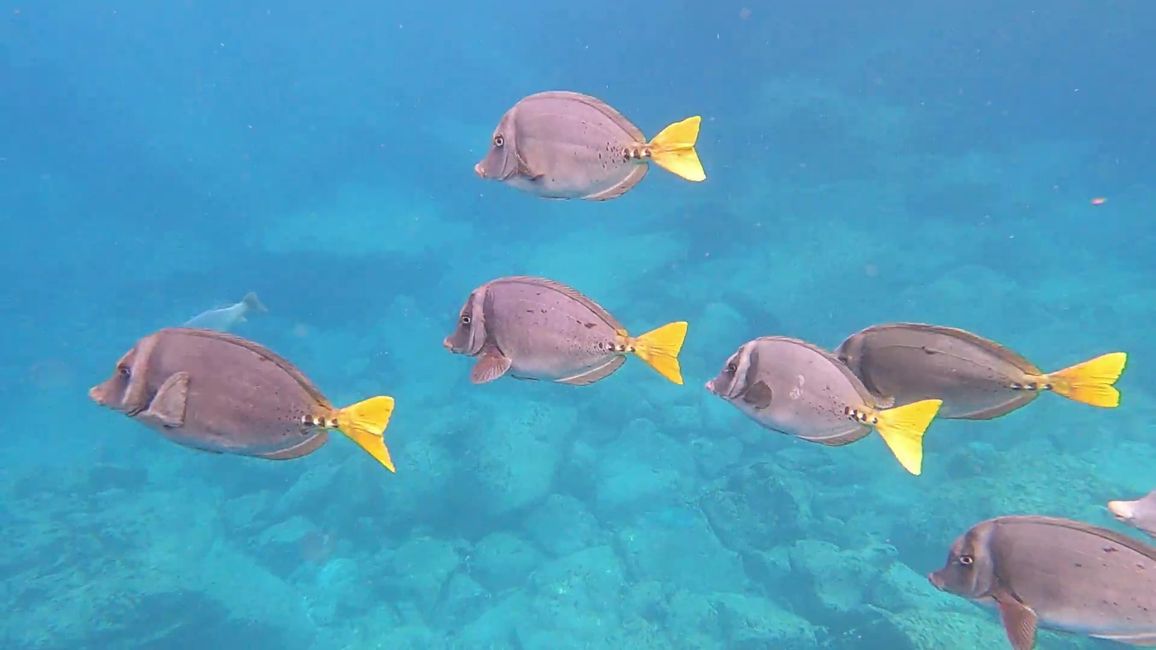
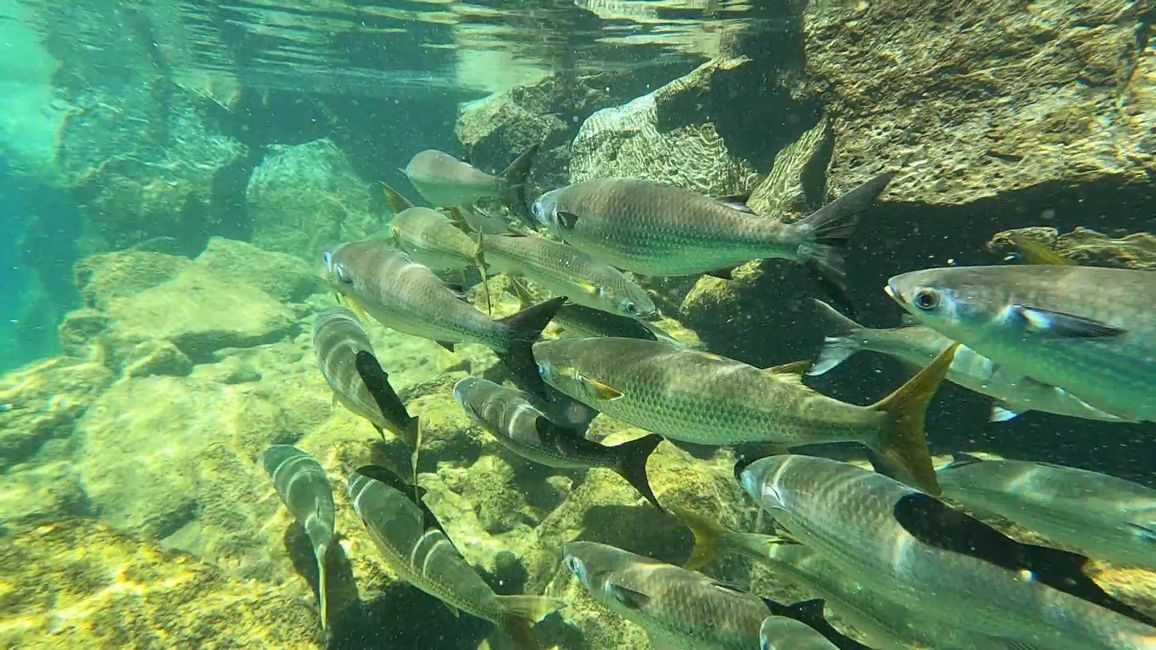
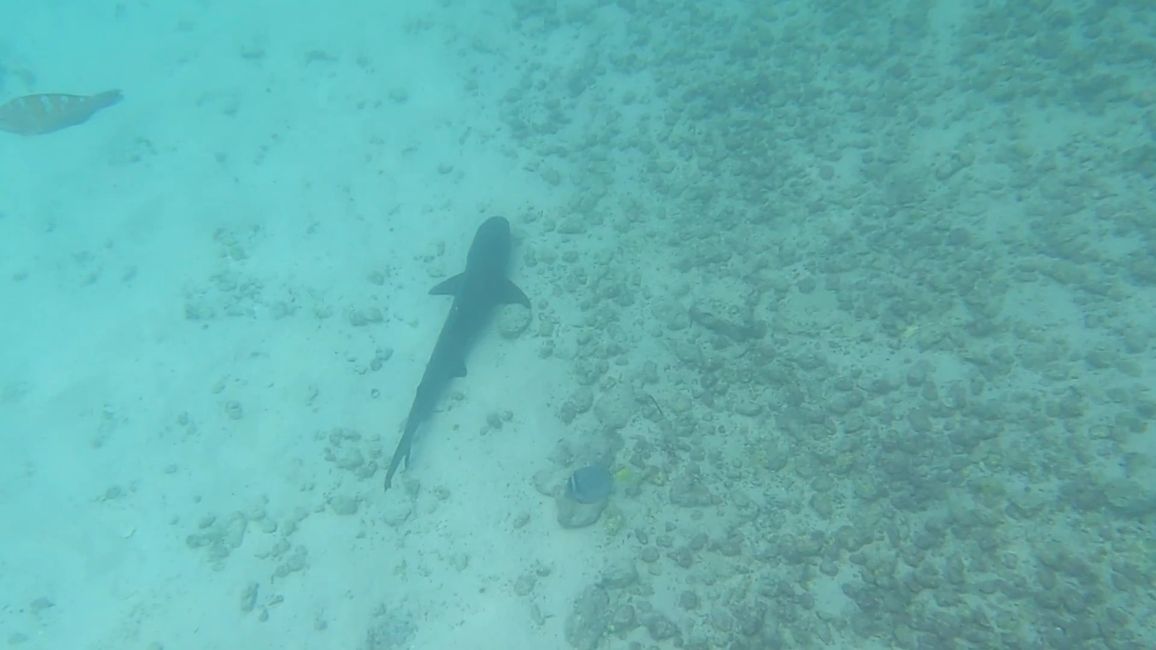
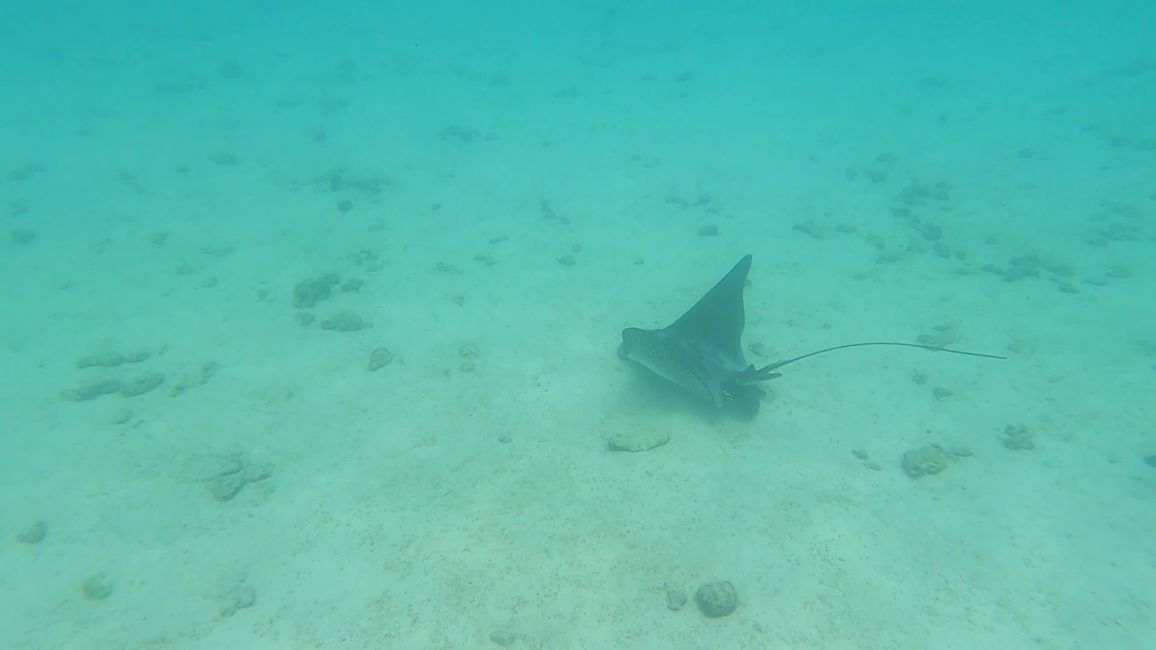
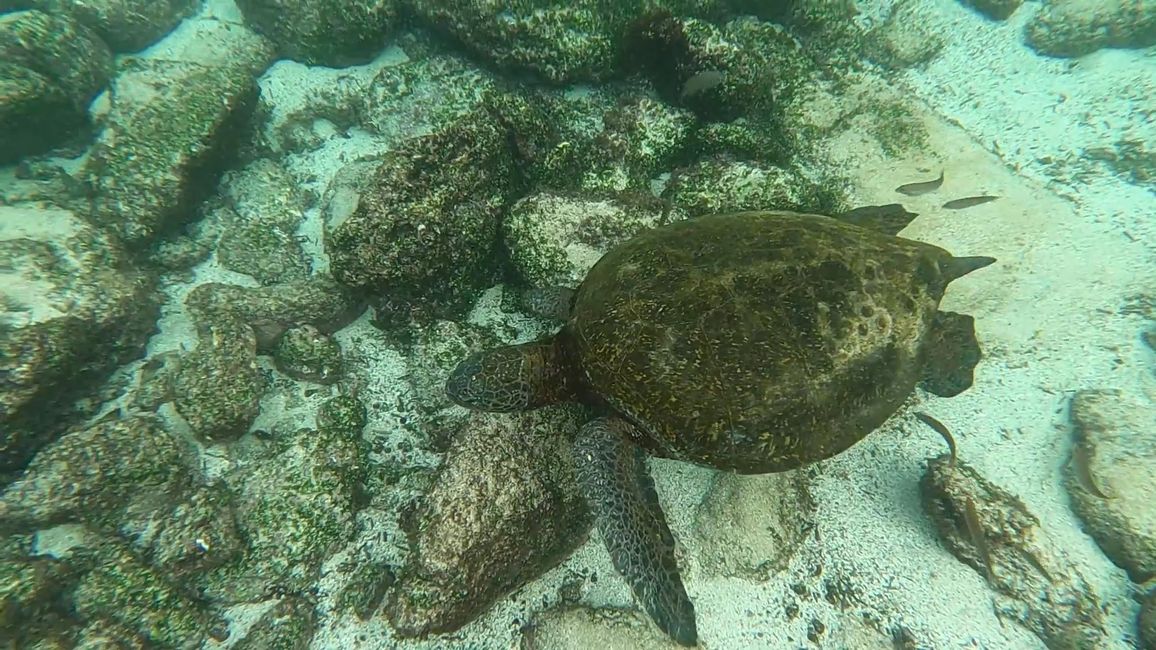
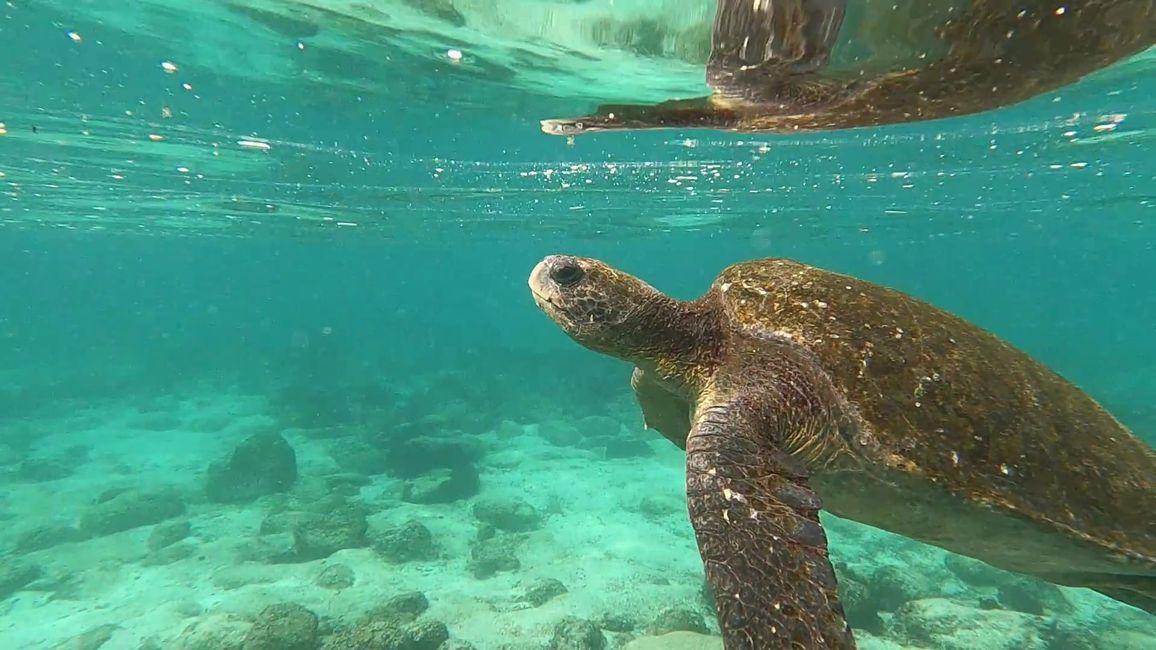
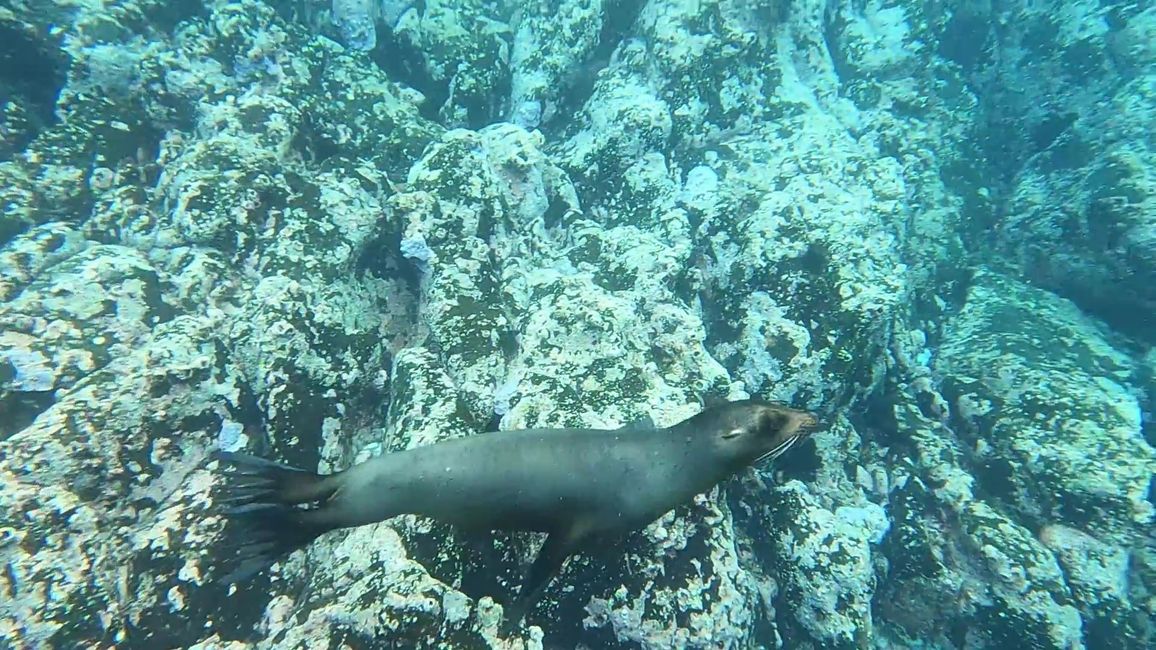
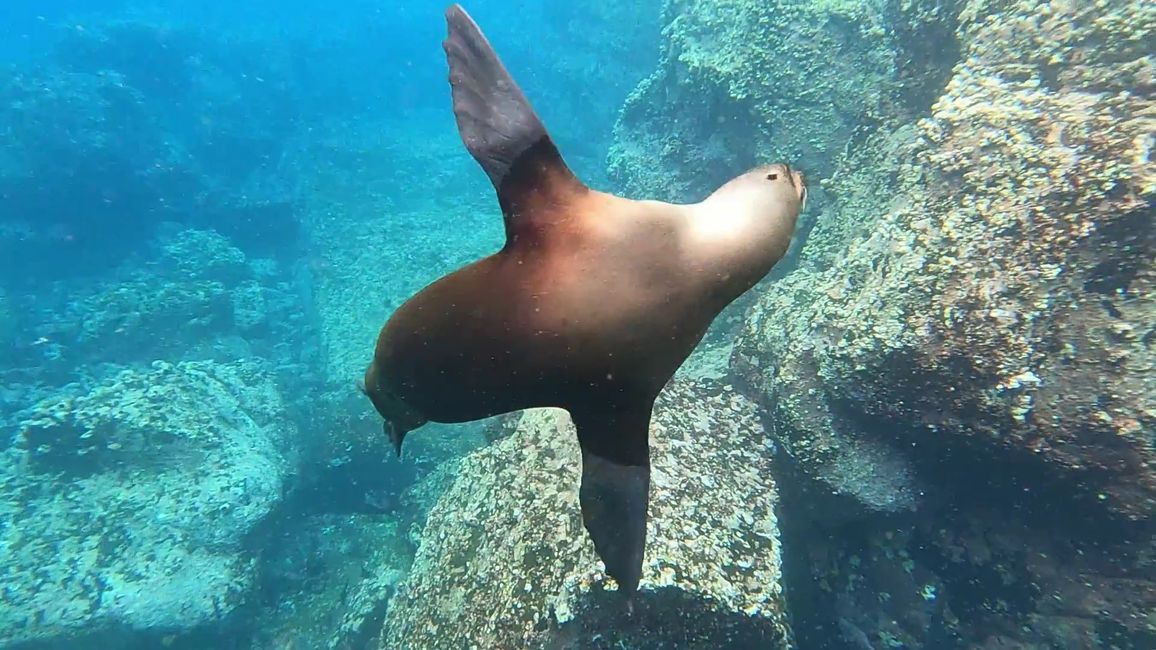
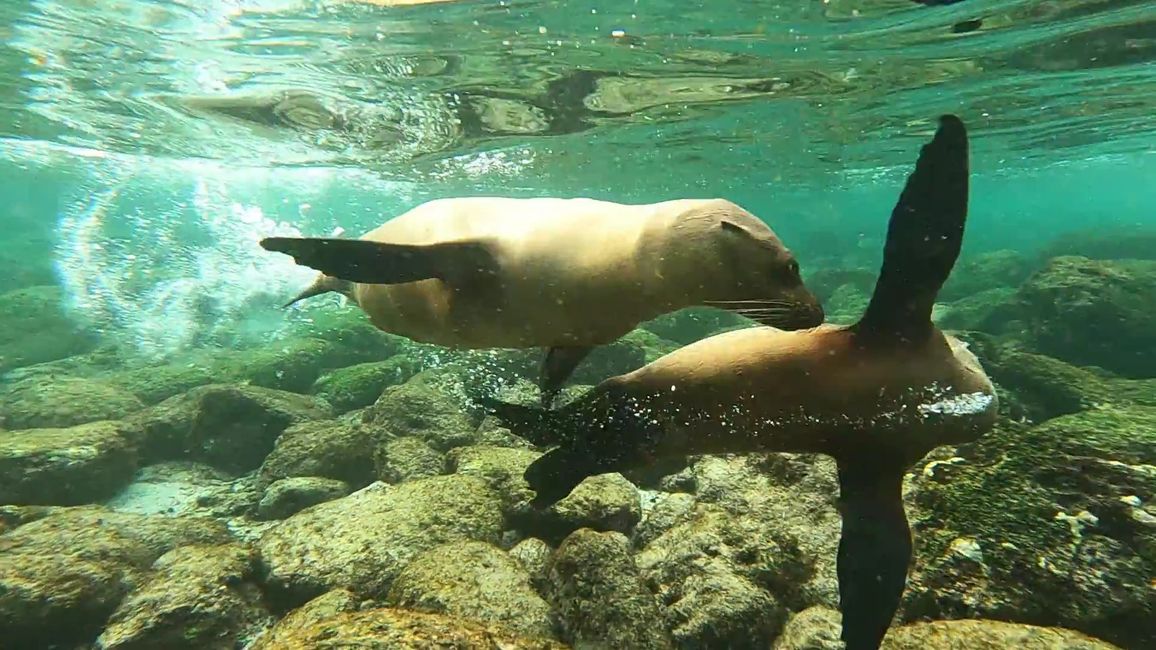
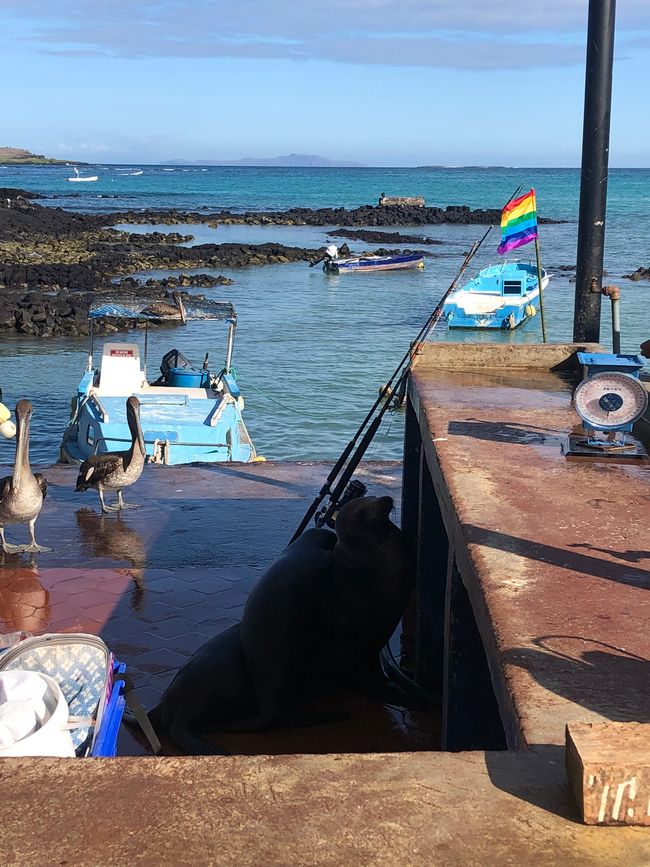
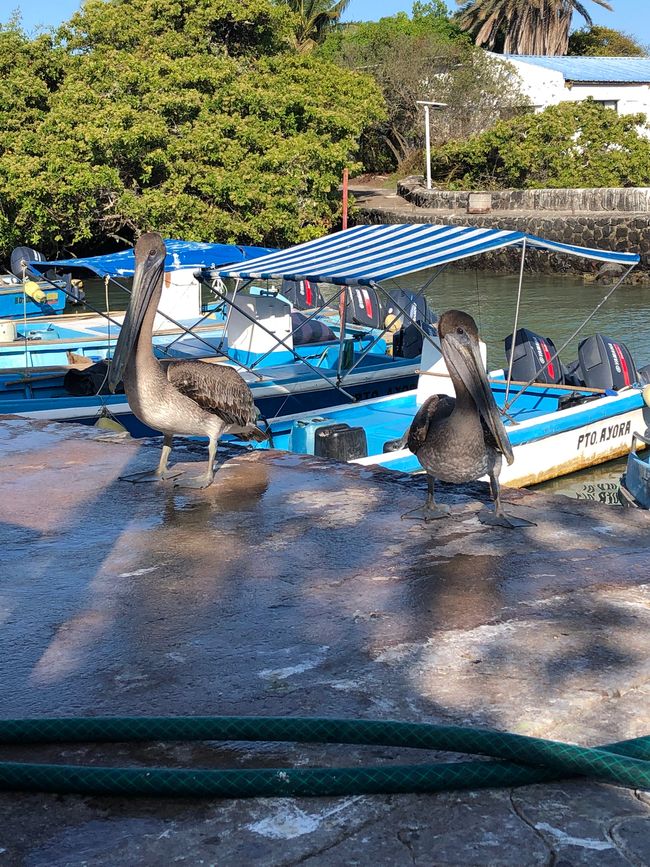
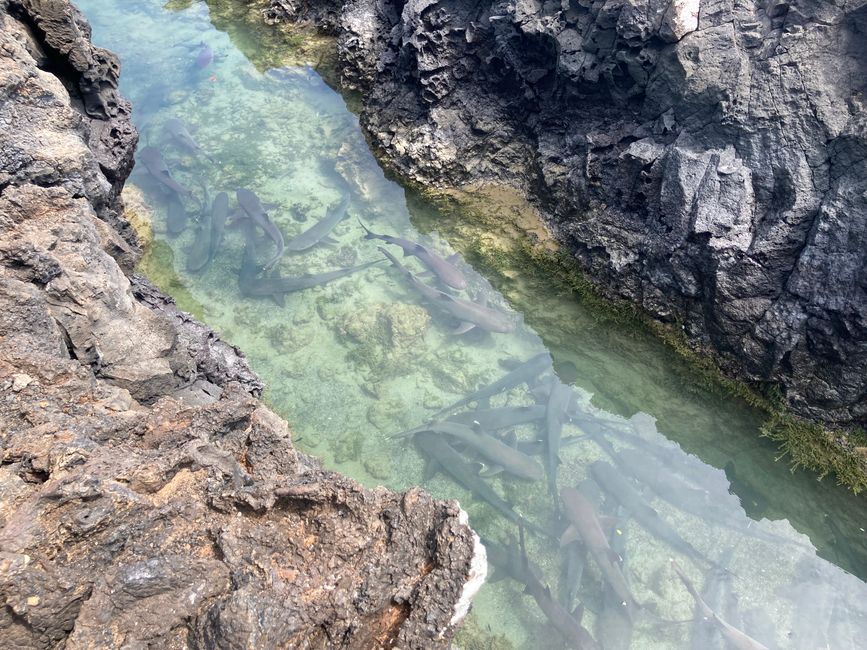
Isla Santa Cruz
With the Galapagos Islands, one of the highlights of our trip was coming up and we were not disappointed. At first, we had decided to visit two islands, but then we changed our plans and ended up visiting all three accessible islands.
First, we went to Santa Cruz, the most inhabited and also the most touristy island. Right after our arrival, we went towards the promenade and wanted to visit the fish market. It doesn't really have much to do with a market, it's more like a small stand. But the interesting thing is that there are sea lions and pelicans everywhere, waiting for some scraps to fall for them. In addition, marine iguanas are lying around everywhere. We had never seen wild animals moving so unaffected among humans before. It was really cool to see. Afterwards, we went to the pier. There were sea lions lying around everywhere again, and from the pier we could already see sharks, sea turtles, and a school of rays. We were already completely thrilled at that time.







On the second day, we visited the Charles Darwin Research Center. There you can learn a lot about the conservation projects on the Galapagos Islands, but we didn't find it super interesting. However, there is a beautiful beach near the center where we spent the afternoon. From the beach, you could snorkel and occasionally see iguanas passing by.

On the third day, we went on an excursion to Las Grietas (the crevices). Once we arrived there, we had a small tour where we learned a lot about the landscape and then we could snorkel in a gorge between volcanic rocks. The water was quite cold, but it was an extraordinary snorkeling spot and we could also see some very large fishes.




In the evening, we went to the food street in Puerto Ayora. There are a series of restaurants offering different menus, especially with fish and seafood, for $5. That's twice as much as in Quito, but still quite cheap for the Galapagos Islands. We ended up getting lost there more often in the next few days because the menus tasted great.

On the next day, it was Kathrin's 32nd birthday and we rented bicycles and drove with another couple to the interior of the island to visit the El Chato giant tortoise reserve. It was quite a sweaty affair as we had to cover over 20 kilometers and almost 500 meters of altitude. Since Kathrin is not a big fan of cycling, she took the bus for the outward journey and waited for us at the top. In the reserve, there was a short tour where we could observe many of the huge Galapagos giant tortoises up close, some of them over 100 years old. They were really impressive. Afterwards, we walked back to the starting point through two lava tunnels. The tour was nice, but at $10 per person, it wasn't cheap (apparently the entrance was free two years ago). From there, we continued to the Los Gemelos craters. These are two huge collapsed lava bubbles that are now completely green with vegetation. There is also a small path with interesting trees and some information boards all around.



After this exhausting day, relaxation was on the agenda the next day. We wanted to go to Tortuga Bay. After about 45 minutes walk, you first reach a super beautiful wide and white sandy beach where you can't swim due to the waves. A little further on, you come to a smaller, absolutely picturesque bay. It was definitely one of the most beautiful beaches we have ever been to. But snorkeling was not possible there because the water was not very clear. We spent the whole afternoon there.



That was it for now with Santa Cruz. We really liked it there. The promenade with all the restaurants and shops creates a real holiday feeling.
Isla Isabela
From Santa Cruz, we took the ferry, or rather a speedboat, to Isla Isabela the next morning at 7 o'clock. The main town there is Puerto Villamil. We were immediately greeted by sea lions. Puerto Villamil is completely different from Puerto Ayora. There is no promenade, but there is a long beach right in the town. It is also much less crowded. There are mainly beach bars where all the tourists gather, especially during sunset. The town is mainly visited by surfers and younger people.
On the first day, we just explored the town a bit and walked to the small salt lagoons to see the flamingos living there. At first, we had no luck, but at the last lagoon, we finally saw some from a distance.


On Isabela, we also went on our first two tours. The first one was to Isla Tintoreras, a small island right in front of the pier. This tour was mainly to see the penguins living there. We were lucky and could observe two penguins in the water directly from the boat. Then we got off the boat and took a short walk over the lava rocks. The first stop was a small water tunnel where many small sharks were lounging and resting. Then we continued past many marine iguanas to our snorkeling spot. We had half an hour to snorkel there and among other things, we saw several sea turtles.

On the next day, we went on a hike to the Sierra Negra volcano, the second-largest active volcanic crater in the world. It was very impressive. Afterwards, we walked a bit through the volcanic landscape, which was also very impressive. Besides black volcanic rocks, there was also red and yellow rubble. We really enjoyed the hike. Unfortunately, parts of our group were a bit rushed, so we covered the 8 kilometers up and down at a quite brisk pace.






On the last day on Isabela, we went on a short hike to some hidden beaches. At one of them, we could even walk in the water through the mangroves, accompanied by the cries of a little sea lion. At one of the beaches, we made ourselves comfortable among all the iguanas and spent the afternoon there.

The next day, we returned to Santa Cruz. Unfortunately, the two-hour boat ride was not cool at all. Because of the waves and the way our captain was driving, it was really uncomfortable. We spent the rest of the day quietly.
The next day, a highlight was on the agenda. Since we hadn't managed to go on a snorkeling tour during our first stay in Santa Cruz, we wanted to make up for it now. We chose the tour to Isla Santa Fe because it was supposed to be possible to swim with sea lions there. The snorkeling tours are quite expensive, but it was really worth it. After a 45-minute boat ride, we reached the first snorkeling spot. Here, we stopped right next to a rock full of birds. Among other things, we saw the blue-footed boobies here, which we really wanted to see. The underwater experience was not so interesting at first. We saw many fishes, but that was already possible from the beach. Shortly afterwards, a young sea lion jumped into the water and swam around us. That was really cool.





Back on board, we had the opportunity to catch our lunch. I also tried my hand at fishing and after a short fight, I pulled a bonito tuna out of the water. However, we were not allowed to eat it and threw it back into the water. Someone else in our group then caught a grouper, which was prepared as sashimi by the crew. Honestly, the fish didn't taste like much, it only became delicious with a lot of soy sauce😉.
After the snack, we went to the second snorkeling spot. We liked this one much better. We stopped in a small bay where several sea lions were lying. We were able to swim very close to them, but we had to keep a certain safety distance from the males. Underwater, we saw a shark right away, followed by a large eagle ray and several sea turtles. The water in this bay was very shallow and super clear, so we had a great view of everything happening underwater.


After a great lunch on board, we visited another super beautiful beach in the afternoon, which was relatively hidden and only accessible by boat. So we had the beach all to ourselves. This was the end of a really successful outing and we headed back to Puerto Ayora.

The next day, we took the ferry to San Cristobal at 7 o'clock in the morning, the third inhabited island in the archipelago. The boat ride was very pleasant this time. When we arrived at San Cristobal, we were already greeted by the screams of the sea lions. There were sea lions everywhere at the shore and many of them had babies that were only a few days old.



After checking in at our accommodation, we went straight to the beach. Unfortunately, there was a really heavy and long-lasting rain shower, which messed up our plans a bit. So we waited out the rain and then made our way to the beach La Loberia because it was located a bit further south and it didn't look like rain there. That was the best idea ever! When we arrived there in the late afternoon, it was low tide, which was perfect for snorkeling. Directly from the beach, you could see many large sea turtles and sea lions also swam past us from time to time. We liked this spot so much that we went there again the next day.



We also visited the Interpretation Center on the next day. There was a lot of information about the formation and history of the Galapagos Islands. Very interesting and definitely worth a visit. Behind the Interpretation Center, there are various paths, leading, among other things, to a beach where you can also swim with sea lions. There is also a bay for snorkeling, but the sea was too rough there, so you couldn't go into the water. We then went up to the viewpoint, from where you had a beautiful view of the sea and the town.
Later, as I said before, we went to the beach La Loberia again.


That was the end of our time on the Galapagos Islands after 13 days. It was truly indescribable and absolutely worth it. We could have stayed even longer. We had heard from others who had been there that it's a different world, and therefore we had high expectations, but these expectations were completely fulfilled.
You can find the video about the Galapagos Islands here:
જવાબ આપો
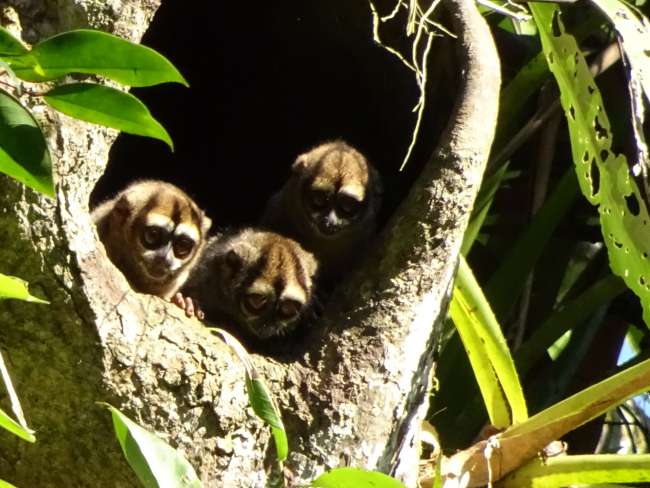
મુસાફરી અહેવાલો એક્વાડોર
